84 Most Influential and Popular Philosophers
Philosophy is a beautiful art of searching for the meaning of life and understanding various elements related to human existence, purpose, and sometimes the universe itself. The term philosophy was coined by Pythagoras in c. 570 – 495 BCE and since then many great philosophers took birth in various parts of the world especially in ancient Greece, Germany, Rome, and France. These philosophers are behind a number of profound ideas and beliefs that cleared ways to rational thinking. The influence of these philosophers is still present in many belief systems, practices, and even normal assumptions. These philosophers challenged deep-rooted political systems and scientific beliefs and played a pivotal role in giving shape to the world. Their study on human existence, belief system, insight, reasons, values, logic, language, mind, and language is guiding various researches going on in scholarly fields even today. Find the list of most popular and influential non-Indian philosophers here.
Note: Indian Philosophers are not added to this list. We have a separate list for them. Click to Read about Best Indian Philosophers.
Plato
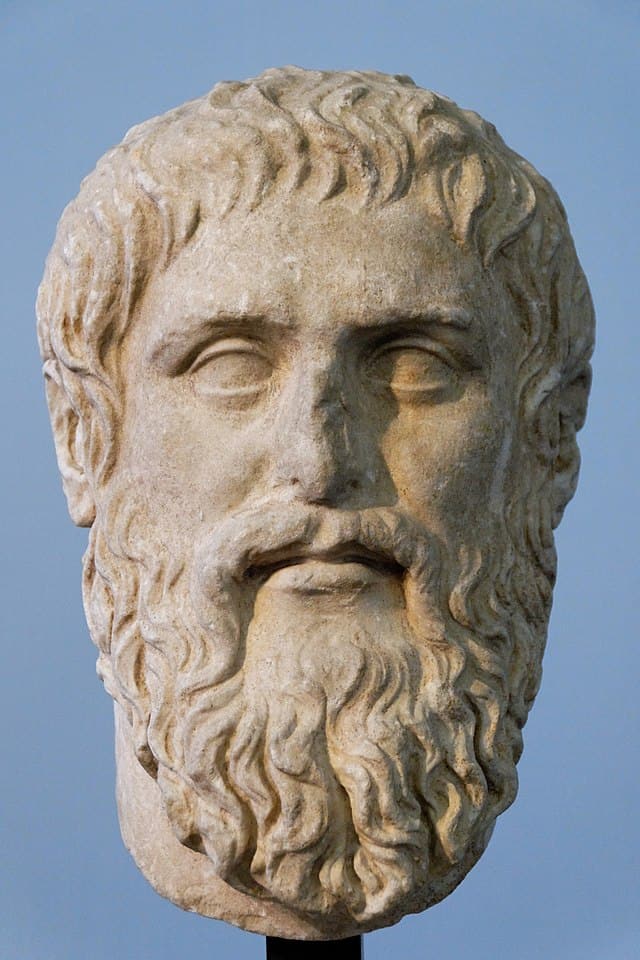
Plato (in Classical Attic; 428/427 or 424/423 – 348/347 BC) was an Athenian philosopher during the Classical period in Ancient Greece, founder of the Platonist school of thought, and the Academy, the first institution of higher learning in the Western world.
He is widely considered the pivotal figure in the history of Ancient Greek and Western philosophy, along with his teacher, Socrates, and his most famous student, Aristotle. Plato has also often been cited as one of the founders of Western religion and spirituality. The so-called Neoplatonism of philosophers like Plotinus and Porphyry greatly influenced Christianity through Church Fathers such as Augustine. Alfred North Whitehead once noted: “the safest general characterization of the European philosophical tradition is that it consists of a series of footnotes to Plato.”Plato was the innovator of the written dialogue and dialectic forms in philosophy. Plato is also considered the founder of Western political philosophy. His most famous contribution is the theory of Forms known by pure reason, in which Plato presents a solution to the problem of universals known as Platonism (also ambiguously called either Platonic realism or Platonic idealism). He is also the namesake of Platonic love and the Platonic solids.
His own most decisive philosophical influences are usually thought to have been along with Socrates, the pre-Socratics Pythagoras, Heraclitus and Parmenides, although few of his predecessors’ works remain extant and much of what we know about these figures today derives from Plato himself. Unlike the work of nearly all of his contemporaries, Plato’s entire body of work is believed to have survived intact for over 2,400 years. Although their popularity has fluctuated over the years, the works of Plato have never been without readers since the time they were written.
Read More About Plato / Source
Aristotle
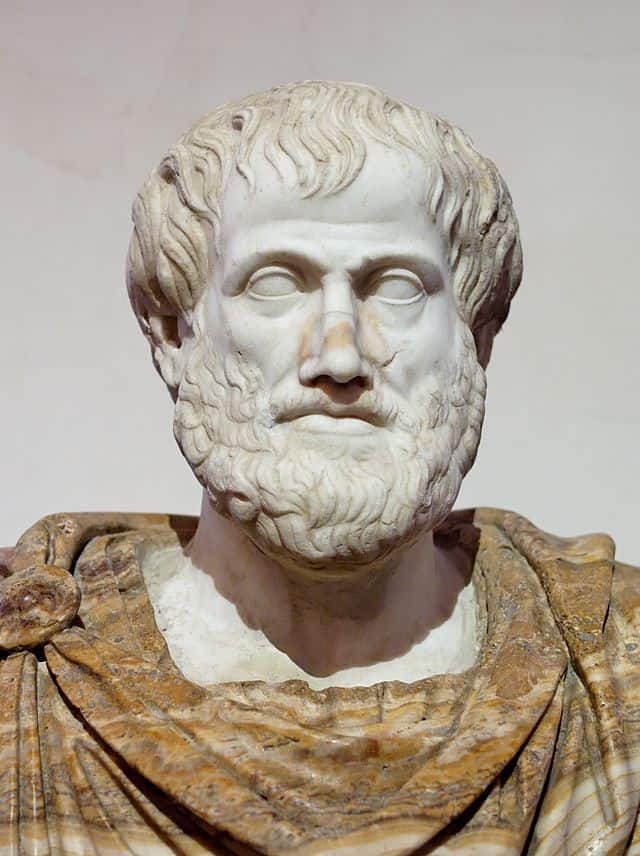
Aristotle (384–322 BC) was a Greek philosopher and polymath during the Classical period in Ancient Greece. Taught by Plato, he was the founder of the Lyceum, the Peripatetic school of philosophy, and the Aristotelian tradition. His writings cover many subjects including physics, biology, zoology, metaphysics, logic, ethics, aesthetics, poetry, theatre, music, rhetoric, psychology, linguistics, economics, politics, and government. Aristotle provided a complex synthesis of the various philosophies existing prior to him. It was above all from his teachings that the West inherited its intellectual lexicon, as well as problems and methods of inquiry. As a result, his philosophy has exerted a unique influence on almost every form of knowledge in the West and it continues to be a subject of contemporary philosophical discussion.
Little is known about his life. Aristotle was born in the city of Stagira in Northern Greece. His father, Nicomachus, died when Aristotle was a child, and he was brought up by a guardian. At seventeen or eighteen years of age he joined Plato’s Academy in Athens and remained there until the age of thirty-seven (c. 347 BC). Shortly after Plato died, Aristotle left Athens and, at the request of Philip II of Macedon, tutored Alexander the Great beginning in 343 BC. He established a library in the Lyceum which helped him to produce many of his hundreds of books on papyrus scrolls. Though Aristotle wrote many elegant treatises and dialogues for publication, only around a third of his original output has survived, none of it intended for publication.Aristotle’s views on physical science profoundly shaped medieval scholarship. Their influence extended from Late Antiquity and the Early Middle Ages into the Renaissance, and were not replaced systematically until the Enlightenment and theories such as classical mechanics were developed. Some of Aristotle’s zoological observations found in his biology, such as on the hectocotyl (reproductive) arm of the octopus, were disbelieved until the 19th century. His works contain the earliest known formal study of logic, studied by medieval scholars such as Peter Abelard and John Buridan. Aristotle’s influence on logic also continued well into the 19th century.
He influenced Judeo-Islamic philosophies (800–1400) during the Middle Ages, as well as Christian theology, especially the Neoplatonism of the Early Church and the scholastic tradition of the Catholic Church. Aristotle was revered among medieval Muslim scholars as “The First Teacher” and among medieval Christians like Thomas Aquinas as simply “The Philosopher”. His ethics, though always influential, gained renewed interest with the modern advent of virtue ethics, such as in the thinking of Alasdair MacIntyre and Philippa Foot.
Read More About Aristotle / Source
Socrates
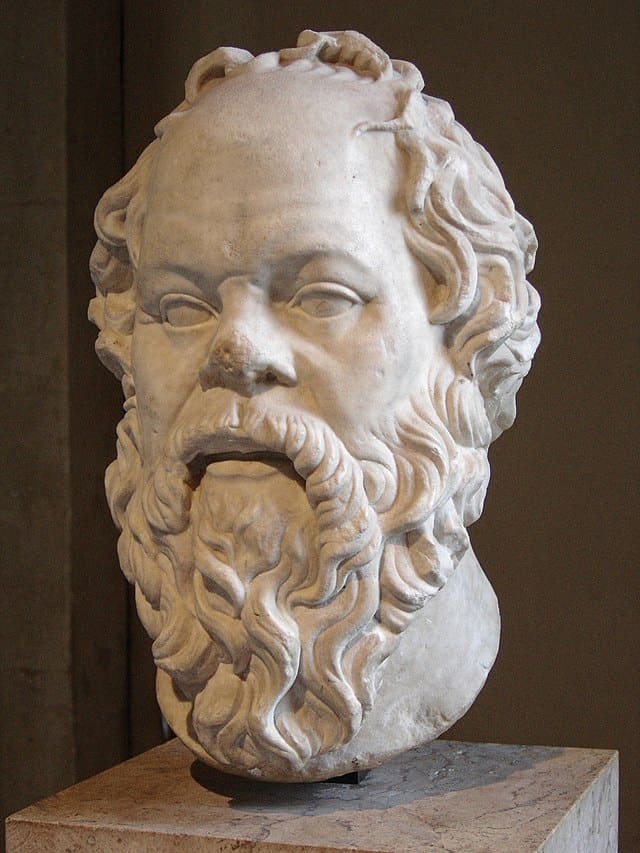
Socrates (c. 470 – 399 BC) was a Greek philosopher from Athens who is credited as one of the founders of Western philosophy, and as being the first moral philosopher of the Western ethical tradition of thought.
An enigmatic figure, he authored no texts, and is known chiefly through the accounts of classical writers composing after his lifetime, particularly his students Plato and Xenophon. Other sources include the contemporaneous Antisthenes, Aristippus, and Aeschines of Sphettos. Aristophanes, a playwright, is the main contemporary author to have written plays mentioning Socrates during Socrates’ lifetime, though a fragment of Ion of Chios’ Travel Journal provides important information about Socrates’ youth.Plato’s dialogues are among the most comprehensive accounts of Socrates to survive from antiquity, from which Socrates has become renowned for his contributions to the fields of ethics and epistemology. It is this Platonic Socrates who lends his name to the concepts of Socratic irony and the Socratic method, or elenchus. However, questions remain regarding the distinction between the real-life Socrates and Plato’s portrayal of Socrates in his dialogues.
Socrates exerted a strong influence on philosophers in later antiquity and in the modern era. Depictions of Socrates in art, literature and popular culture have made him one of the most widely known figures in the Western philosophical tradition.
Read More About Socrates / Source
René Descartes
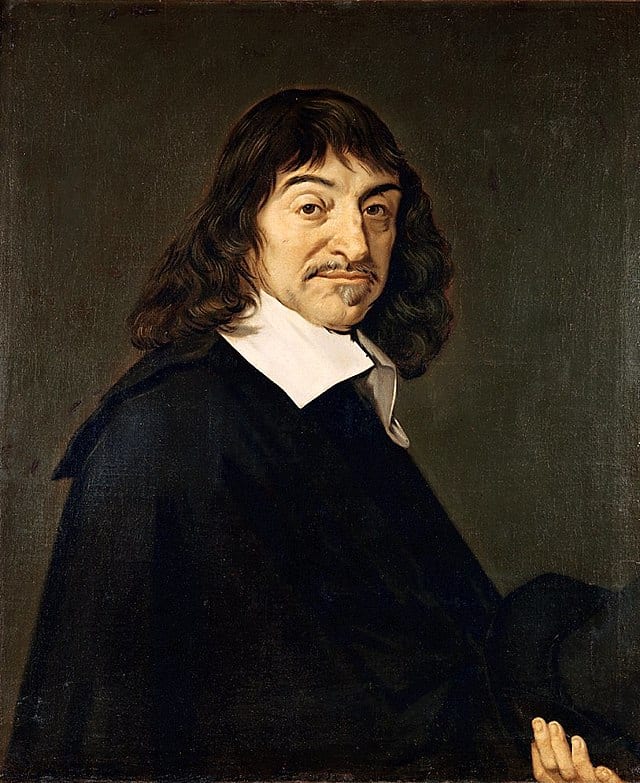
René Descartes (31 March 1596 – 11 February 1650) was a French-born philosopher, mathematician, and scientist. A native of the Kingdom of France, he spent about 20 years (1629–1649) of his life in the Dutch Republic after serving for a while in the Dutch States Army of Maurice of Nassau, Prince of Orange and the Stadtholder of the United Provinces. One of the most notable intellectual figures of the Dutch Golden Age, Descartes is also widely regarded as one of the founders of modern philosophy.
Many elements of Descartes’s philosophy have precedents in late Aristotelianism, the revived Stoicism of the 16th century, or in earlier philosophers like Augustine. In his natural philosophy, he differed from the schools on two major points: first, he rejected the splitting of corporeal substance into matter and form; second, he rejected any appeal to final ends, divine or natural, in explaining natural phenomena. In his theology, he insists on the absolute freedom of God’s act of creation. Refusing to accept the authority of previous philosophers, Descartes frequently set his views apart from the philosophers who preceded him. In the opening section of the Passions of the Soul, an early modern treatise on emotions, Descartes goes so far as to assert that he will write on this topic “as if no one had written on these matters before.” His best known philosophical statement is “cogito, ergo sum” (“I think, therefore I am”; French: Je pense, donc je suis), found in Discourse on the Method (1637; in French and Latin) and Principles of Philosophy (1644, in Latin).Descartes has often been called the father of modern philosophy, and is largely seen as responsible for the increased attention given to epistemology in the 17th century. He laid the foundation for 17th-century continental rationalism, later advocated by Spinoza and Leibniz, and was later opposed by the empiricist school of thought consisting of Hobbes, Locke, Berkeley, and Hume. In the 17th-century Dutch Republic, the rise of early modern rationalism – as a highly systematic school of philosophy in its own right for the first time in history – exerted an immense and profound influence on modern Western thought in general, with the birth of two influential rationalistic philosophical systems of Descartes (who spent most of his adult life and wrote all his major work in the United Provinces of the Netherlands) and Spinoza – namely Cartesianism and Spinozism. It was the 17th-century arch-rationalists like Descartes, Spinoza and Leibniz who have given the “Age of Reason” its name and place in history. Leibniz, Spinoza, and Descartes were all well-versed in mathematics as well as philosophy, and Descartes and Leibniz contributed greatly to science as well.Descartes’s Meditations on First Philosophy (1641) continues to be a standard text at most university philosophy departments. Descartes’s influence in mathematics is equally apparent; the Cartesian coordinate system was named after him. He is credited as the father of analytical geometry, the bridge between algebra and geometry—used in the discovery of infinitesimal calculus and analysis. Descartes was also one of the key figures in the Scientific Revolution.
Read More About René Descartes / Source
Immanuel Kant
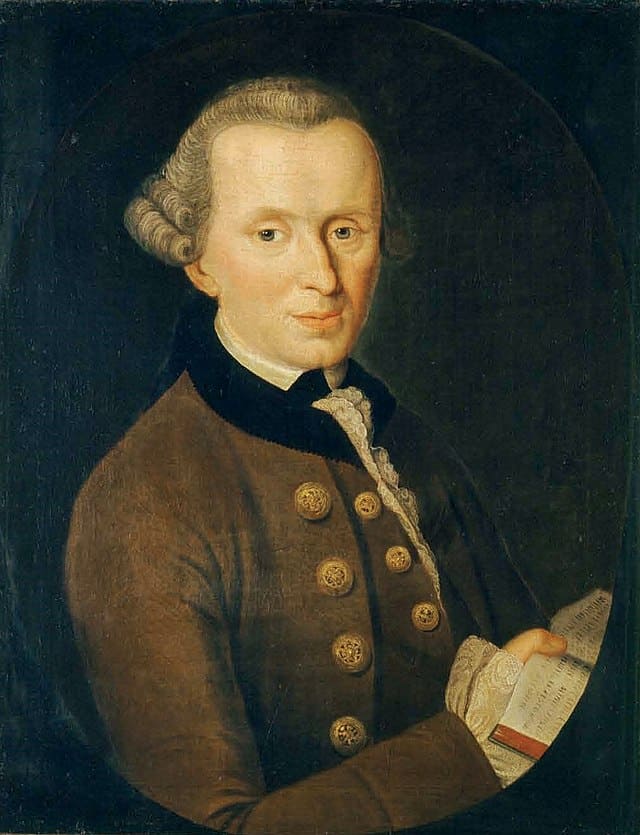
Immanuel Kant ( 22 April 1724 – 12 February 1804) was a German philosopher and one of the central Enlightenment thinkers. Kant’s comprehensive and systematic works in epistemology, metaphysics, ethics, and aesthetics have made him one of the most influential figures in modern Western philosophy.In his doctrine of transcendental idealism, Kant argued that space and time are mere “forms of intuition” which structure all experience, and therefore that while “things-in-themselves” exist and contribute to experience, they are nonetheless distinct from the objects of experience. From this it follows that the objects of experience are mere “appearances”, and that the nature of things as they are in themselves is consequently unknowable to us. In an attempt to counter the skepticism he found in the writings of philosopher David Hume, he wrote the Critique of Pure Reason (1781/1787), one of his most well-known works. In it, he developed his theory of experience to answer the question of whether synthetic a priori knowledge is possible, which would in turn make it possible to determine the limits of metaphysical inquiry. Kant drew a parallel to the Copernican revolution in his proposal that the objects of the senses must conform to our spatial and temporal forms of intuition, and that we can consequently have a priori cognition of the objects of the senses.Kant believed that reason is also the source of morality, and that aesthetics arise from a faculty of disinterested judgment. Kant’s views continue to have a major influence on contemporary philosophy, especially the fields of epistemology, ethics, political theory, and post-modern aesthetics. He attempted to explain the relationship between reason and human experience and to move beyond what he believed to be the failures of traditional philosophy and metaphysics. He wanted to put an end to what he saw as an era of futile and speculative theories of human experience, while resisting the skepticism of thinkers such as Hume. He regarded himself as showing the way past the impasse between rationalists and empiricists, and is widely held to have synthesized both traditions in his thought.Kant was an exponent of the idea that perpetual peace could be secured through universal democracy and international cooperation, and that perhaps this could be the culminating stage of world history. The nature of Kant’s religious views continues to be the subject of scholarly dispute, with viewpoints ranging from the impression that he shifted from an early defense of an ontological argument for the existence of God to a principled agnosticism, to more critical treatments epitomized by Schopenhauer, who criticized the imperative form of Kantian ethics as “theological morals” and the “Mosaic Decalogue in disguise”, and Nietzsche, who claimed that Kant had “theologian blood” and was merely a sophisticated apologist for traditional Christian faith. Beyond his religious views, Kant has also been criticized for the racism presented in some of his lesser-known papers, such as “On the Use of Teleological Principles in Philosophy” and “On the Different Races of Man”. An advocate of scientific racism for much of his career, Kant’s views on race changed significantly in the last decade of his life, and he ultimately rejected racial hierarchies and European colonialism in Perpetual Peace: A Philosophical Sketch (1795).Kant published other important works on ethics, religion, law, aesthetics, astronomy, and history during his lifetime. These include the Universal Natural History (1755), the Critique of Practical Reason (1788), the Critique of Judgment (1790), Religion within the Bounds of Bare Reason (1793), and the Metaphysics of Morals (1797).
Read More About Immanuel Kant / Source
Friedrich Nietzsche
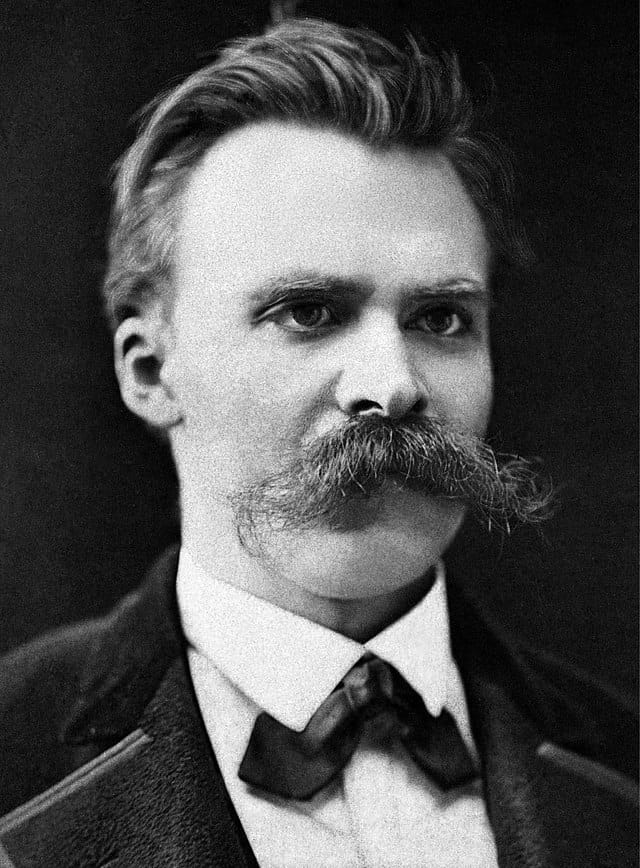
Friedrich Wilhelm Nietzsche ( 15 October 1844 – 25 August 1900) was a German philosopher, cultural critic, composer, poet, and philologist whose work has exerted a profound influence on modern intellectual history. He began his career as a classical philologist before turning to philosophy. He became the youngest person ever to hold the Chair of Classical Philology at the University of Basel in 1869 at the age of 24. Nietzsche resigned in 1879 due to health problems that plagued him most of his life; he completed much of his core writing in the following decade. In 1889, at age 44, he suffered a collapse and afterward a complete loss of his mental faculties. He lived his remaining years in the care of his mother until her death in 1897 and then with his sister Elisabeth Förster-Nietzsche. Nietzsche died in 1900.Nietzsche’s writing spans philosophical polemics, poetry, cultural criticism, and fiction while displaying a fondness for aphorism and irony. Prominent elements of his philosophy include his radical critique of truth in favor of perspectivism; a genealogical critique of religion and Christian morality and related theory of master–slave morality; the aesthetic affirmation of existence in response to the “death of God” and the profound crisis of nihilism; the notion of Apollonian and Dionysian forces; and a characterization of the human subject as the expression of competing wills, collectively understood as the will to power. He also developed influential concepts such as the Übermensch and the doctrine of eternal return. In his later work, he became increasingly preoccupied with the creative powers of the individual to overcome cultural and moral mores in pursuit of new values and aesthetic health. His body of work touched a wide range of topics, including art, philology, history, religion, tragedy, culture, and science, and drew early inspiration from figures such as philosopher Arthur Schopenhauer, composer Richard Wagner, and writer Johann Wolfgang von Goethe.After his death, his sister Elisabeth became the curator and editor of Nietzsche’s manuscripts. She edited his unpublished writings to fit her German nationalist ideology while often contradicting or obfuscating Nietzsche’s stated opinions, which were explicitly opposed to antisemitism and nationalism. Through her published editions, Nietzsche’s work became associated with fascism and Nazism; 20th-century scholars contested this interpretation, and corrected editions of his writings were soon made available. Nietzsche’s thought enjoyed renewed popularity in the 1960s and his ideas have since had a profound impact on 20th and early-21st century thinkers across philosophy—especially in schools of continental philosophy such as existentialism, postmodernism and post-structuralism—as well as art, literature, psychology, politics, and popular culture.
Read More About Friedrich Nietzsche / Source
Confucius
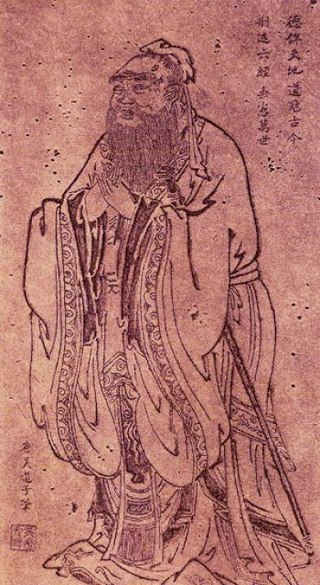
Confucius ( 551–479 BC) was a Chinese philosopher and politician of the Spring and Autumn period who was traditionally considered the paragon of Chinese sages.
The philosophy of Confucius, also known as Confucianism, emphasized personal and governmental morality, correctness of social relationships, justice, kindness, and sincerity. Confucianism was part of the Chinese social fabric and way of life; to Confucians, everyday life was the arena of religion. His followers competed successfully with many other schools during the Hundred Schools of Thought era only to be suppressed in favor of the Legalists during the Qin dynasty. Following the victory of Han over Chu after the collapse of Qin, Confucius’s thoughts received official sanction in the new government. During the Tang and Song dynasties, Confucianism developed into a system known in the West as Neo-Confucianism, and later New Confucianism (Modern Neo-Confucianism).
Confucius is traditionally credited with having authored or edited many of the Chinese classic texts including all of the Five Classics, but modern scholars are cautious of attributing specific assertions to Confucius himself. Aphorisms concerning his teachings were compiled in the Analects, but only many years after his death.
Confucius’s principles have commonality with Chinese tradition and belief. He championed strong family loyalty, ancestor veneration, and respect of elders by their children and of husbands by their wives, recommending family as a basis for ideal government. He espoused the well-known principle “Do not do unto others what you do not want done to yourself”, the Golden Rule. He is also a traditional deity in Daoism.
Confucius is widely considered as one of the most important and influential individuals in human history. His teaching and philosophy greatly impacted people around the world and remain influential today.
Read More About Confucius / Source
John Locke
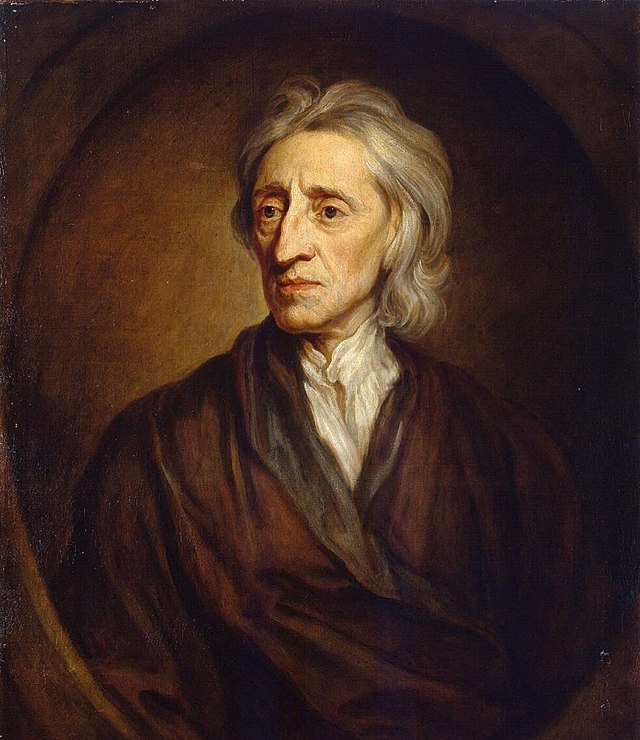
John Locke ( 29 August 1632 – 28 October 1704) was an English philosopher and physician, widely regarded as one of the most influential of Enlightenment thinkers and commonly known as the “Father of Liberalism”. Considered one of the first of the British empiricists, following the tradition of Sir Francis Bacon, Locke is equally important to social contract theory. His work greatly affected the development of epistemology and political philosophy. His writings influenced Voltaire and Jean-Jacques Rousseau, and many Scottish Enlightenment thinkers, as well as the American Revolutionaries. His contributions to classical republicanism and liberal theory are reflected in the United States Declaration of Independence.Locke’s theory of mind is often cited as the origin of modern conceptions of identity and the self, figuring prominently in the work of later philosophers such as Jean-Jacques Rousseau, David Hume, and Immanuel Kant. Locke was the first to define the self through a continuity of consciousness. He postulated that, at birth, the mind was a blank slate, or tabula rasa. Contrary to Cartesian philosophy based on pre-existing concepts, he maintained that we are born without innate ideas, and that knowledge is instead determined only by experience derived from sense perception, a concept now known as empiricism. Demonstrating the ideology of science in his observations, whereby something must be capable of being tested repeatedly and that nothing is exempt from being disproved, Locke stated that “whatever I write, as soon as I discover it not to be true, my hand shall be the forwardest to throw it into the fire”. Such is one example of Locke’s belief in empiricism. Challenging the work of others, Locke is said to have established the method of introspection, i.e. observing the emotions and behaviours of one’s self.
Read More About John Locke / Source
Karl Marx
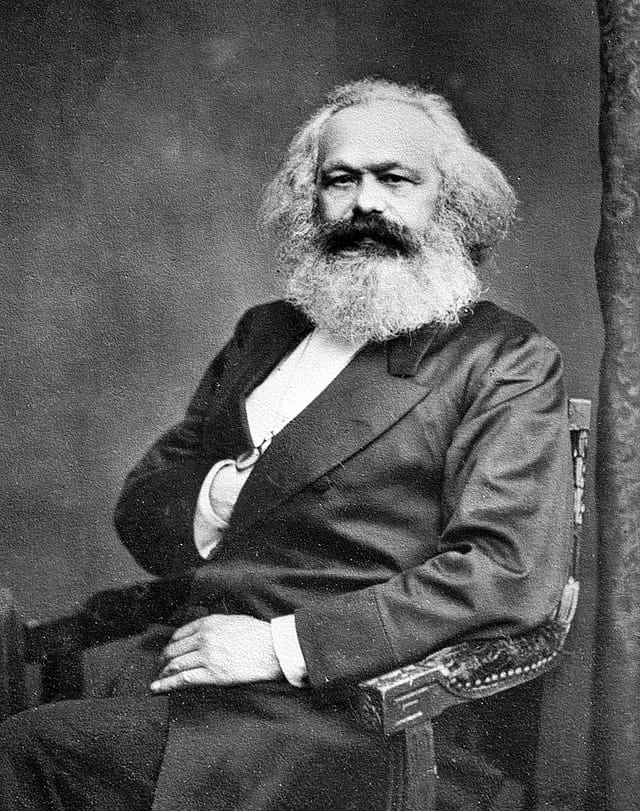
Karl Heinrich Marx ( 5 May 1818 – 14 March 1883) was a German philosopher, economist, historian, sociologist, political theorist, journalist and socialist revolutionary. Born in Trier, Germany, Marx studied law and philosophy at university. He married Jenny von Westphalen in 1843. Due to his political publications, Marx became stateless and lived in exile with his wife and children in London for decades, where he continued to develop his thought in collaboration with German thinker Friedrich Engels and publish his writings, researching in the reading room of the British Museum. His best-known titles are the 1848 pamphlet The Communist Manifesto and the three-volume Das Kapital (1867–1883). Marx’s political and philosophical thought had enormous influence on subsequent intellectual, economic and political history. His name has been used as an adjective, a noun and a school of social theory.
Marx’s critical theories about society, economics and politics, collectively understood as Marxism, hold that human societies develop through class conflict. In the capitalist mode of production, this manifests itself in the conflict between the ruling classes (known as the bourgeoisie) that control the means of production and the working classes (known as the proletariat) that enable these means by selling their labour power in return for wages. Employing a critical approach known as historical materialism, Marx predicted that capitalism produced internal tensions like previous socio-economic systems and that those would lead to its self-destruction and replacement by a new system known as the socialist mode of production. For Marx, class antagonisms under capitalism, owing in part to its instability and crisis-prone nature, would eventuate the working class’ development of class consciousness, leading to their conquest of political power and eventually the establishment of a classless, communist society constituted by a free association of producers. Marx actively pressed for its implementation, arguing that the working class should carry out organised proletarian revolutionary action to topple capitalism and bring about socio-economic emancipation.Marx has been described as one of the most influential figures in human history and his work has been both lauded and criticised. His work in economics laid the basis for much of the current understanding of labour and its relation to capital and subsequent economic thought. Many intellectuals, labour unions, artists and political parties worldwide have been influenced by Marx’s work, with many modifying or adapting his ideas. Marx is typically cited as one of the principal architects of modern social science.
Read More About Karl Marx / Source
Thomas Aquinas
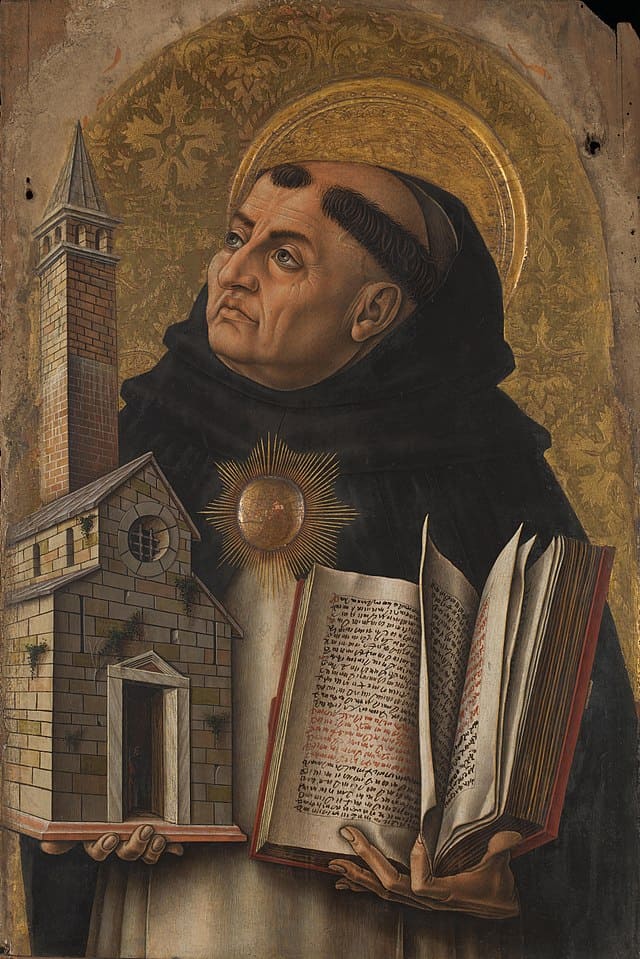
Thomas Aquinas ( 1225 – 7 March 1274) was an Italian Dominican friar, philosopher, Catholic priest, and Doctor of the Church. An immensely influential philosopher, theologian, and jurist in the tradition of scholasticism, he is also known within the latter as the Doctor Angelicus and the Doctor Communis. The name Aquinas identifies his ancestral origins in the county of Aquino in present-day Lazio, Italy. He was the foremost classical proponent of natural theology and the father of Thomism; of which he argued that reason is found in God. His influence on Western thought is considerable, and much of modern philosophy developed or opposed his ideas, particularly in the areas of ethics, natural law, metaphysics, and political theory.
Unlike many currents in the Church of the time, Thomas embraced several ideas put forward by Aristotle—whom he called “the Philosopher”—and attempted to synthesize Aristotelian philosophy with the principles of Christianity.His best-known works are the Disputed Questions on Truth (1256–1259), the Summa contra Gentiles (1259–1265), and the unfinished but massively influential Summa Theologica a.k.a. Summa Theologiae (1265–1274). His commentaries on Scripture and on Aristotle also form an important part of his body of work. Furthermore, Thomas is distinguished for his eucharistic hymns, which form a part of the Church’s liturgy. The Catholic Church honors Thomas Aquinas as a saint and regards him as the model teacher for those studying for the priesthood, and indeed the highest expression of both natural reason and speculative theology. In modern times, under papal directives, the study of his works was long used as a core of the required program of study for those seeking ordination as priests or deacons, as well as for those in religious formation and for other students of the sacred disciplines (philosophy, Catholic theology, church history, liturgy, and canon law).Thomas Aquinas is considered one of the Catholic Church’s greatest theologians and philosophers. Pope Benedict XV declared: “This (Dominican) Order … acquired new luster when the Church declared the teaching of Thomas to be her own and that Doctor, honored with the special praises of the Pontiffs, the master and patron of Catholic schools.” The English philosopher Anthony Kenny considers Thomas to be “one of the dozen greatest philosophers of the western world”.
Read More About Thomas Aquinas / Source
Diogenes
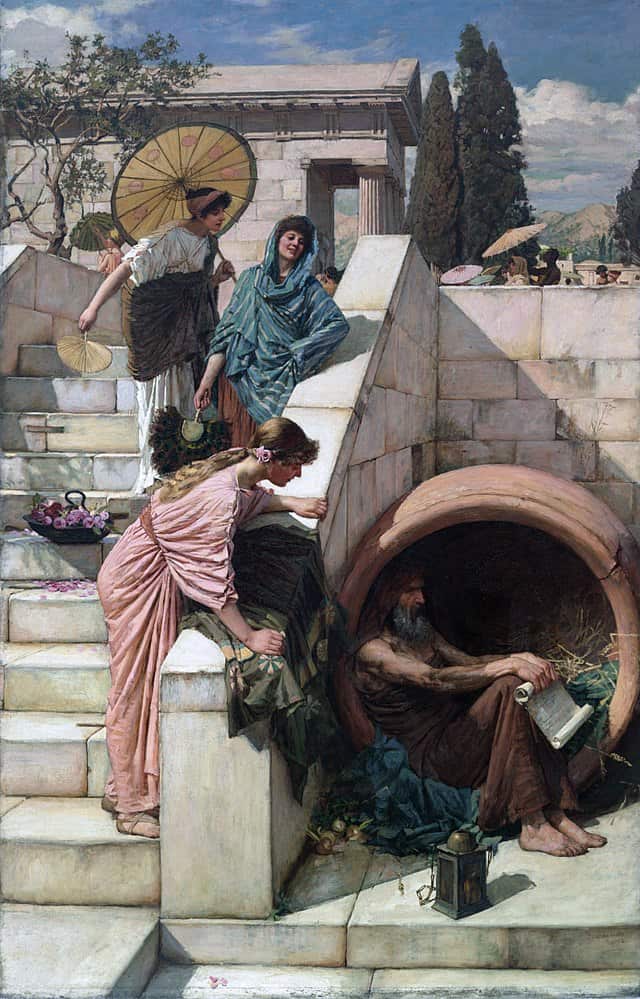
Diogenes, also known as Diogenes the Cynic, was a Greek philosopher and one of the founders of Cynic philosophy. He was born in Sinope, an Ionian colony on the Black Sea coast of modern day Turkey, in 412 or 404 BC and died at Corinth in 323 BC.Diogenes was a controversial figure. His father minted coins for a living, and Diogenes was banished from Sinope when he took to debasement of currency. After being exiled, he moved to Athens and criticized many cultural conventions of the city. He modelled himself on the example of Heracles, and believed that virtue was better revealed in action than in theory. He used his simple lifestyle and behaviour to criticize the social values and institutions of what he saw as a corrupt, confused society. He had a reputation for sleeping and eating wherever he chose in a highly non-traditional fashion, and took to toughening himself against nature. He declared himself a cosmopolitan and a citizen of the world rather than claiming allegiance to just one place. There are many tales about his dogging Antisthenes’ footsteps and becoming his “faithful hound”.
Diogenes made a virtue of poverty. He begged for a living and often slept in a large ceramic jar, or pithos, in the marketplace. He became notorious for his philosophical stunts, such as carrying a lamp during the day, claiming to be looking for a man (often rendered in English as “looking for an honest man”).
Read More About Diogenes / Source
Ptahhotep
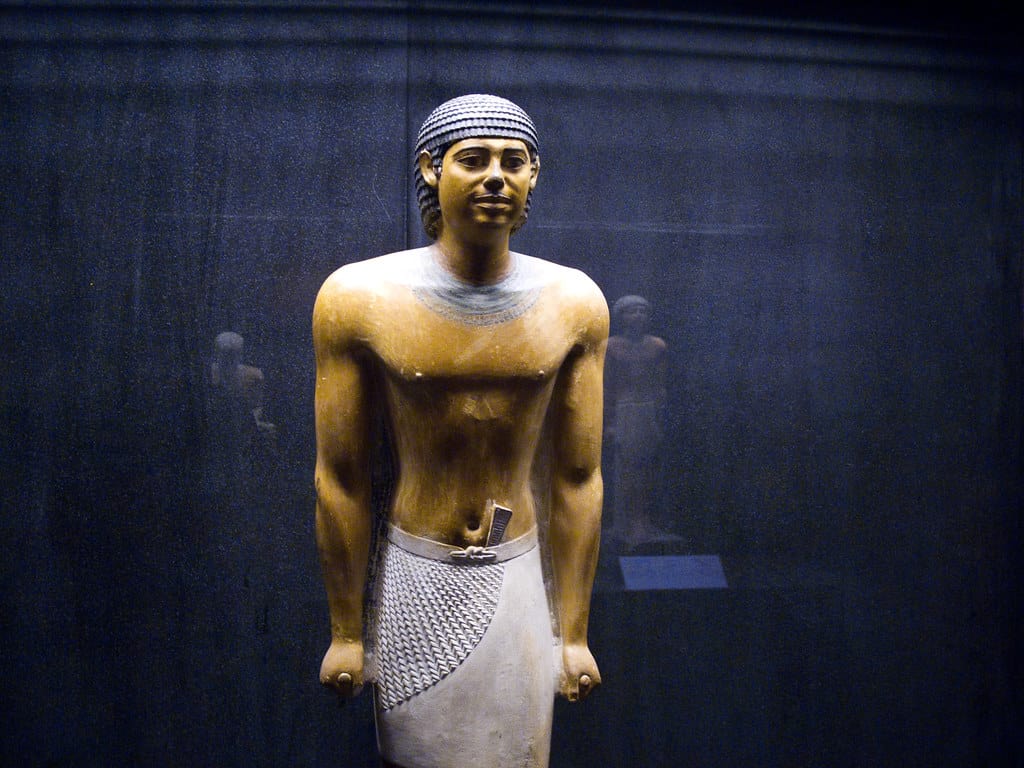
Ptahhotep (Ancient Egyptian: ptḥ ḥtp piˈtaħħaːtip “Peace of Ptah”), sometimes known as Ptahhotep I or Ptahhotpe, was an ancient Egyptian vizier during the late 25th century BC and early 24th century BC Fifth Dynasty of Egypt.
Read More About Ptahhotep / Source
Epictetus
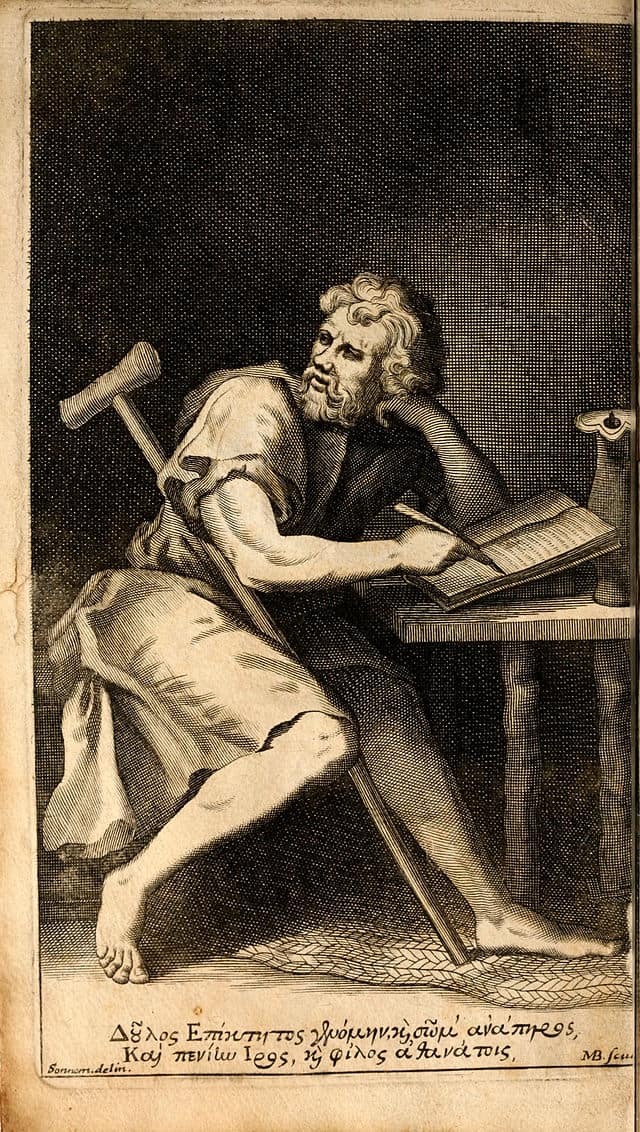
Epictetus ( c. 50 – c. 135 AD) was a Greek Stoic philosopher. He was born a slave at Hierapolis, Phrygia (present day Pamukkale, Turkey) and lived in Rome until his banishment, when he went to Nicopolis in northwestern Greece for the rest of his life. His teachings were written down and published by his pupil Arrian in his Discourses and Enchiridion.
Epictetus taught that philosophy is a way of life and not just a theoretical discipline. To Epictetus, all external events are beyond our control; we should accept calmly and dispassionately whatever happens. However, individuals are responsible for their own actions, which they can examine and control through rigorous self-discipline.
Read More About Epictetus / Source
M. Scott Peck
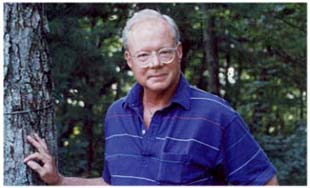
Morgan Scott Peck (1936–2005) was an American psychiatrist and best-selling author who wrote the book The Road Less Traveled, published in 1978. Peck served in administrative posts in the government during his career as a psychiatrist. He also served in the US Army and rose to the rank of lieutenant colonel. His army assignments included stints as chief of psychology at the Army Medical Center in Okinawa, Japan, and assistant chief of psychiatry and neurology in the office of the surgeon general in Washington, DC. He was the medical director of the New Milford Hospital Mental Health Clinic and a psychiatrist in private practice in New Milford, Connecticut. His first and best-known book, The Road Less Traveled, sold more than 10 million copies.
Read More About M. Scott Peck / Source
Al-Ghazali
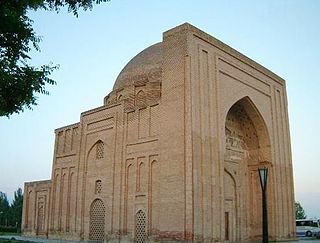
Al-Ghazali ( c. 1058 – 19 December 1111) was a Persian philosopher who was one of the most prominent and influential Muslim philosophers, theologians, jurists, and mystics, of Sunni Islam.Most Muslims consider him to be a Mujaddid, a renewer of the faith who, according to the prophetic hadith, appears once every century to restore the faith of the ummah (“the Islamic Community”). His works were so highly acclaimed by his contemporaries that al-Ghazali was awarded the honorific title “Proof of Islam” (Hujjat al-Islām).Al-Ghazali believed that the Islamic spiritual tradition had become moribund and that the spiritual sciences taught by the first generation of Muslims had been forgotten. That resulted in his writing his magnum opus entitled Iḥyā’ ‘ulūm ad-dīn (“The Revival of the Religious Sciences”). Among his other works, the Tahāfut al-Falāsifa (“Incoherence of the Philosophers”) is a significant landmark in the history of philosophy, as it advances the critique of Aristotelian science developed later in 14th-century Europe.
Read More About Al-Ghazali / Source
Chrysippus
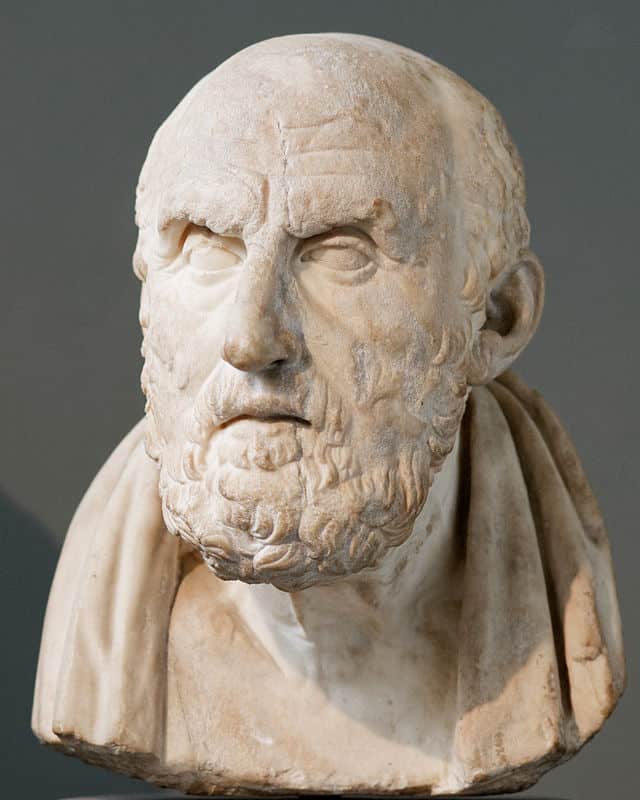
Chrysippus of Soli ( c. 279 – c. 206 BC) was a Greek Stoic philosopher. He was a native of Soli, Cilicia, but moved to Athens as a young man, where he became a pupil of Cleanthes in the Stoic school. When Cleanthes died, around 230 BC, Chrysippus became the third head of the school. A prolific writer, Chrysippus expanded the fundamental doctrines of Zeno of Citium, the founder of the school, which earned him the title of Second Founder of Stoicism.Chrysippus excelled in logic, the theory of knowledge, ethics, and physics. He created an original system of propositional logic in order to better understand the workings of the universe and role of humanity within it. He adhered to a deterministic view of fate, but nevertheless sought a role for personal freedom in thought and action. Ethics, he thought, depended on understanding the nature of the universe, and he taught a therapy of extirpating the unruly passions which depress and crush the soul. He initiated the success of Stoicism as one of the most influential philosophical movements for centuries in the Greek and Roman world.
Of his written works, none have survived except as fragments. Recently, segments of some of his works were discovered among the Herculaneum papyri.
Read More About Chrysippus / Source
Leucippus
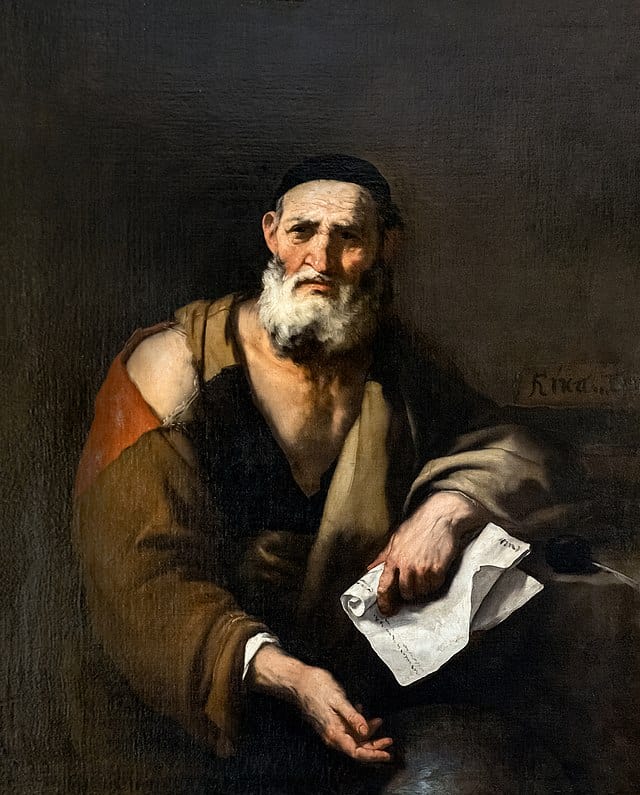
Leucippus is reported in some ancient sources to have been a philosopher who was the earliest Greek to develop the theory of atomism—the idea that everything is composed entirely of various imperishable, indivisible elements called atoms. Leucippus often appears as the master to his pupil Democritus, a philosopher also touted as the originator of the atomic theory.
Aristotle and Theophrastos certainly made him [Leucippus] the originator of the atomic theory, and they can hardly have been mistaken on such a point.”
A brief notice in Diogenes Laërtius’s life of Epicurus says that on the testimony of Epicurus, Leucippus never existed. As the philosophical heir of Democritus, Epicurus’s word has some weight, and indeed a controversy over this matter raged in German scholarship for many years at the close of the 19th century. Furthermore, in his Corpus Democriteum, Thrasyllus of Alexandria, an astrologer and writer living under the emperor Tiberius (14–37 CE), compiled a list of writings on atomism that he attributed to Democritus to the exclusion of Leucippus. The present consensus among the world’s historians of philosophy is that this Leucippus is historical. Leucippus was most likely born in Miletus, although Abdera and Elea are also mentioned as possible birthplaces.
Read More About Leucippus / Source
Dalai Lama
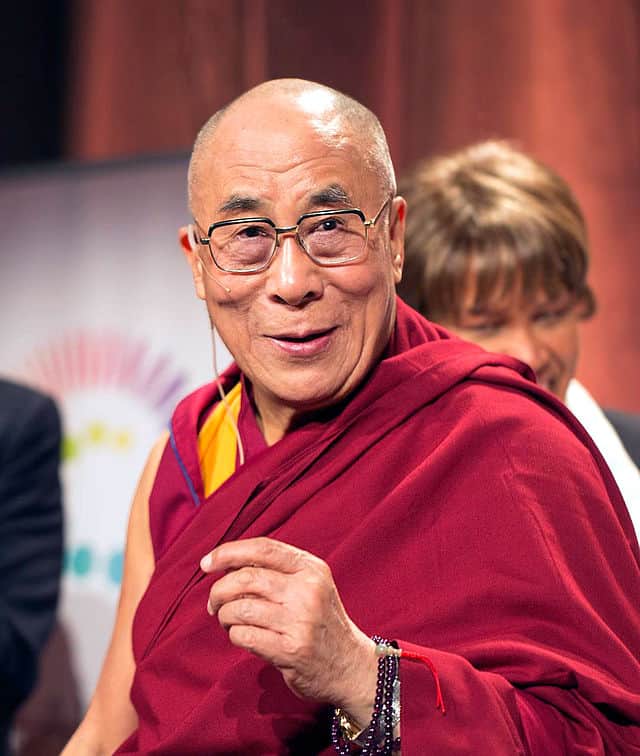
The 14th Dalai Lama (spiritual name Jetsun Jamphel Ngawang Lobsang Yeshe Tenzin Gyatso, known as Tenzin Gyatso; born Lhamo Dhondup, 6 July 1935) is the current Dalai Lama, the highest spiritual leader of Tibet, and considered a living buddha. The Dalai Lamas are also leaders of the Gelug school, which is the newest school of Tibetan Buddhism and was formally headed by the Ganden Tripas. From the time of the 5th Dalai Lama to 1959, the central government of Tibet, the Ganden Phodrang, invested the position of Dalai Lama with temporal duties.The 14th Dalai Lama was born in Taktser, Tibet. He was selected as the tulku of the 13th Dalai Lama in 1937 and formally recognized as the 14th Dalai Lama in a public declaration near the town of Bumchen in 1939. As with the recognition process for the 13th Dalai Lama, a golden urn selection process was not used. His enthronement ceremony as the Dalai Lama was held in Lhasa on 22 February 1940 and he eventually assumed full temporal (political) duties on 17 November 1950, at the age of 15, after the People’s Republic of China’s occupation of Tibet. The Gelug school’s government administered an area roughly corresponding to the Tibet Autonomous Region, just as the nascent PRC wished to assert control over it.
Read More About Dalai Lama / Source
Ernest Holmes

Ernest Shurtleff Holmes (January 21, 1887 – April 7, 1960) was an American New Thought writer, teacher, and leader. He was the founder of a Spiritual movement known as Religious Science, part of the greater New Thought movement, whose spiritual philosophy is known as “The Science of Mind.” He was the author of The Science of Mind and numerous other metaphysical books, and the founder of Science of Mind magazine, in continuous publication since 1927. His books remain in print, and the principles he taught as “Science of Mind” have inspired and influenced many generations of metaphysical students and teachers. Holmes had previously studied another New Thought teaching, Divine Science, and was an ordained Divine Science Minister. His influence beyond New Thought can be seen in the self-help movement.
Read More About Ernest Holmes / Source
Zeno of Citium
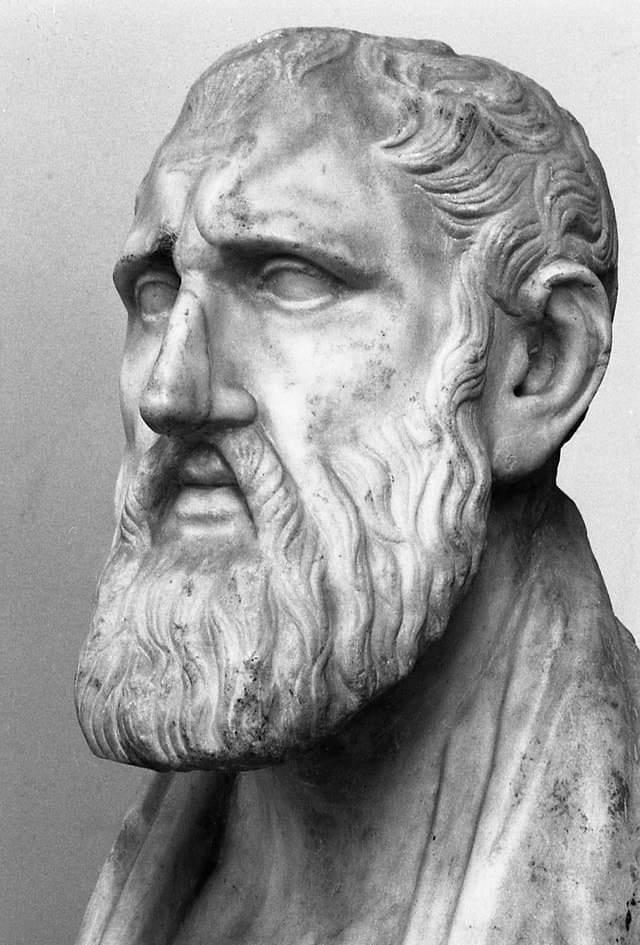
Zeno of Citium ( c. 334 – c. 262 BC) was a Hellenistic philosopher of Phoenician origin from Citium (Κίτιον, Kition), Cyprus. Zeno was the founder of the Stoic school of philosophy, which he taught in Athens from about 300 BC. Based on the moral ideas of the Cynics, Stoicism laid great emphasis on goodness and peace of mind gained from living a life of virtue in accordance with nature. It proved very popular, and flourished as one of the major schools of philosophy from the Hellenistic period through to the Roman era, and enjoyed revivals in the Renaissance as Neostoicism and in the current era as Modern Stoicism.
Read More About Zeno of Citium / Source
Robert Brandom
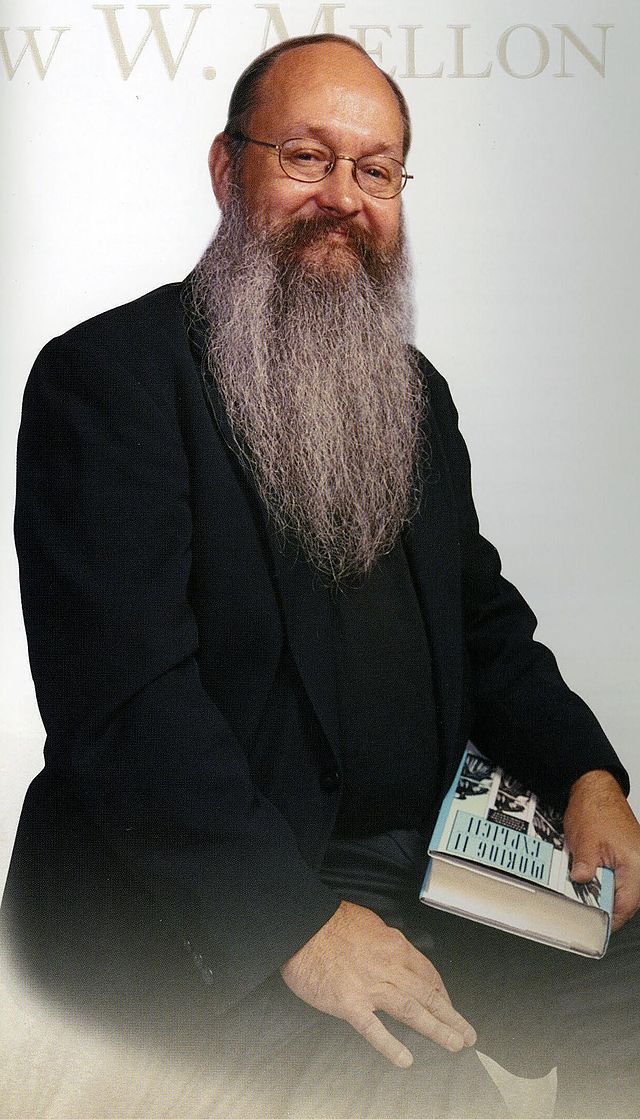
Robert Boyce Brandom (born March 13, 1950) is an American philosopher who teaches at the University of Pittsburgh. He works primarily in philosophy of language, philosophy of mind and philosophical logic, and his academic output manifests both systematic and historical interests in these topics. His work has presented “arguably the first fully systematic and technically rigorous attempt to explain the meaning of linguistic items in terms of their socially norm-governed use (“meaning as use”, to cite the Wittgensteinian slogan), thereby also giving a non-representationalist account of the intentionality of thought and the rationality of action as well.”Brandom is broadly considered to be part of the American pragmatist tradition in philosophy. In 2003 he won the Mellon Distinguished Achievement Award.
Read More About Robert Brandom / Source
Pythagoras
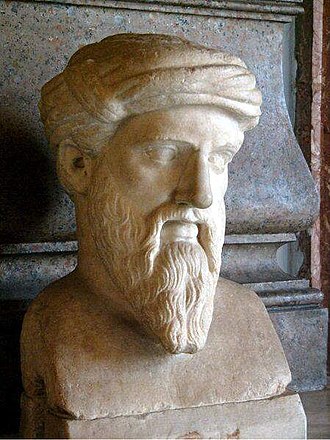
Pythagoras of Samos (c. 570 – c. 495 BC) was an ancient Ionian Greek philosopher and the eponymous founder of Pythagoreanism. His political and religious teachings were well known in Magna Graecia and influenced the philosophies of Plato, Aristotle, and, through them, Western philosophy. Knowledge of his life is clouded by legend, but he appears to have been the son of Mnesarchus, a gem-engraver on the island of Samos. Modern scholars disagree regarding Pythagoras’s education and influences, but they do agree that, around 530 BC, he travelled to Croton in southern Italy, where he founded a school in which initiates were sworn to secrecy and lived a communal, ascetic lifestyle. This lifestyle entailed a number of dietary prohibitions, traditionally said to have included vegetarianism, although modern scholars doubt that he ever advocated for complete vegetarianism.
Read More About Pythagoras / Source
Gottfried Wilhelm Leibniz
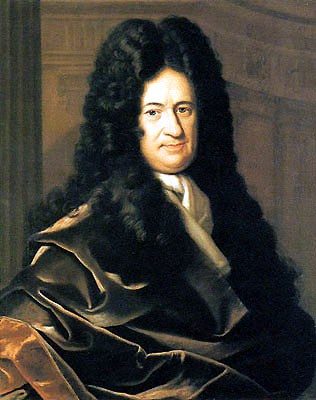
Gottfried Wilhelm (von) Leibniz ( 1 July 1646 [O.S. 21 June] – 14 November 1716) was a prominent German polymath and one of the most important logicians, mathematicians and natural philosophers of the Enlightenment. As a representative of the seventeenth-century tradition of rationalism, Leibniz developed, as his most prominent accomplishment, the ideas of differential and integral calculus, independently of Isaac Newton’s contemporaneous developments. Mathematical works have consistently favored Leibniz’s notation as the conventional expression of calculus. It was only in the 20th century that Leibniz’s law of continuity and transcendental law of homogeneity found mathematical implementation (by means of non-standard analysis). He became one of the most prolific inventors in the field of mechanical calculators. While working on adding automatic multiplication and division to Pascal’s calculator, he was the first to describe a pinwheel calculator in 1685 and invented the Leibniz wheel, used in the arithmometer, the first mass-produced mechanical calculator. He also refined the binary number system, which is the foundation of nearly all digital (electronic, solid-state, discrete logic) computers, including the Von Neumann machine, which is the standard design paradigm, or “computer architecture”, followed from the second half of the 20th century, and into the 21st.
Read More About Gottfried Wilhelm Leibniz / Source
Adam Smith
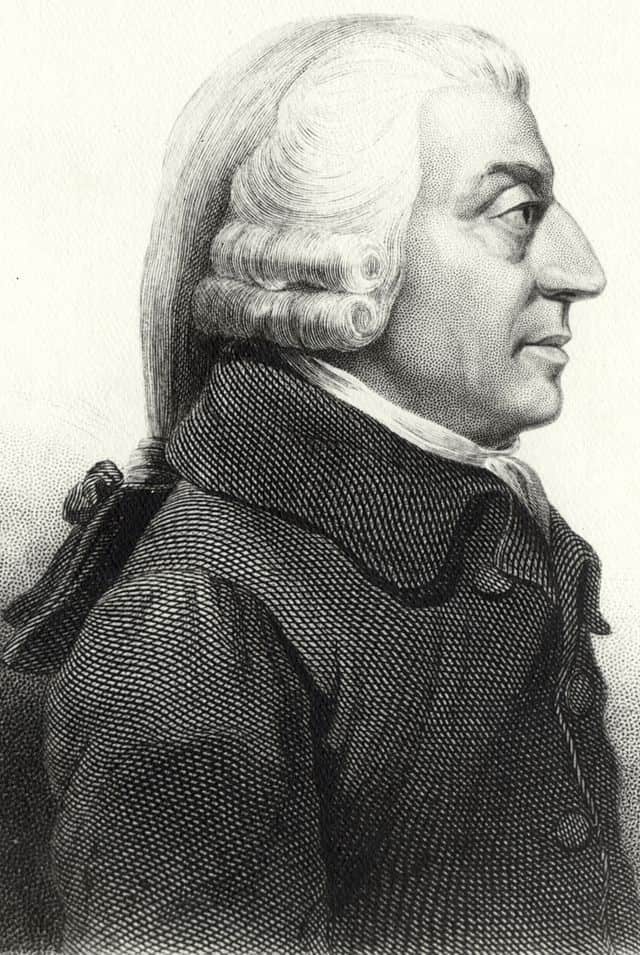
Adam Smith (c. 16 June [O.S. c. 5 June] 1723 – 17 July 1790) was a Scottish economist, philosopher as well as a moral philosopher, a pioneer of political economy, and a key figure during the Scottish Enlightenment, also known as ”The Father of Economics” or ”The Father of Capitalism”. Smith wrote two classic works, The Theory of Moral Sentiments (1759) and An Inquiry into the Nature and Causes of the Wealth of Nations (1776). The latter, often abbreviated as The Wealth of Nations, is considered his magnum opus and the first modern work of economics. In his work, Adam Smith introduced his theory of absolute advantage.Smith studied social philosophy at the University of Glasgow and at Balliol College, Oxford, where he was one of the first students to benefit from scholarships set up by fellow Scot John Snell. After graduating, he delivered a successful series of public lectures at the University of Edinburgh, leading him to collaborate with David Hume during the Scottish Enlightenment. Smith obtained a professorship at Glasgow, teaching moral philosophy and during this time, wrote and published The Theory of Moral Sentiments. In his later life, he took a tutoring position that allowed him to travel throughout Europe, where he met other intellectual leaders of his day.
Read More About Adam Smith / Source
John C. Maxwell
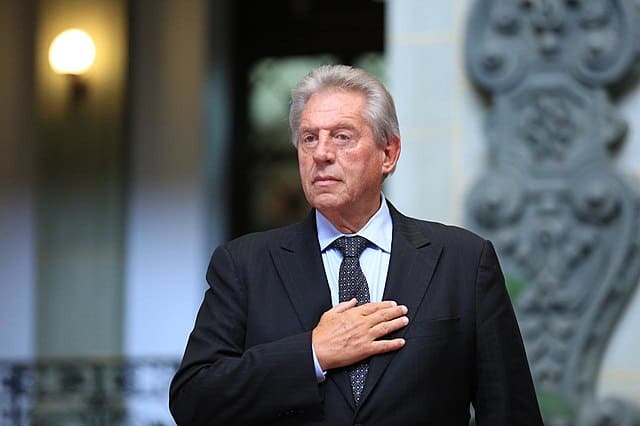
John Calvin Maxwell (born February 20, 1947) is an American author, speaker, and pastor who has written many books, primarily focusing on leadership. Titles include The 21 Irrefutable Laws of Leadership and The 21 Indispensable Qualities of a Leader. His books have sold millions of copies, with some on the New York Times Best Seller List.
Read More About John C. Maxwell / Source
Jean-Paul Sartre
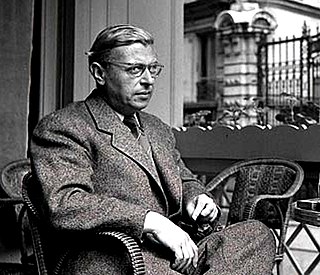
Jean-Paul Charles Aymard Sartre ( 21 June 1905 – 15 April 1980) was a French philosopher, playwright, novelist, screenwriter, political activist, biographer, and literary critic. He was one of the key figures in the philosophy of existentialism and phenomenology, and one of the leading figures in 20th-century French philosophy and Marxism. His work has also influenced sociology, critical theory, post-colonial theory, and literary studies, and continues to influence these disciplines.
Sartre was also noted for his open relationship with prominent feminist and fellow existentialist philosopher and writer Simone de Beauvoir. Together, Sartre and de Beauvoir challenged the cultural and social assumptions and expectations of their upbringings, which they considered bourgeois, in both lifestyle and thought. The conflict between oppressive, spiritually destructive conformity (mauvaise foi, literally, ‘bad faith’) and an “authentic” way of “being” became the dominant theme of Sartre’s early work, a theme embodied in his principal philosophical work Being and Nothingness (L’Être et le Néant, 1943). Sartre’s introduction to his philosophy is his work Existentialism Is a Humanism (L’existentialisme est un humanisme, 1946), originally presented as a lecture.
He was awarded the 1964 Nobel Prize in Literature despite attempting to refuse it, saying that he always declined official honours and that “a writer should not allow himself to be turned into an institution.”
Read More About Jean-Paul Sartre / Source
Tom Butler-Bowdon
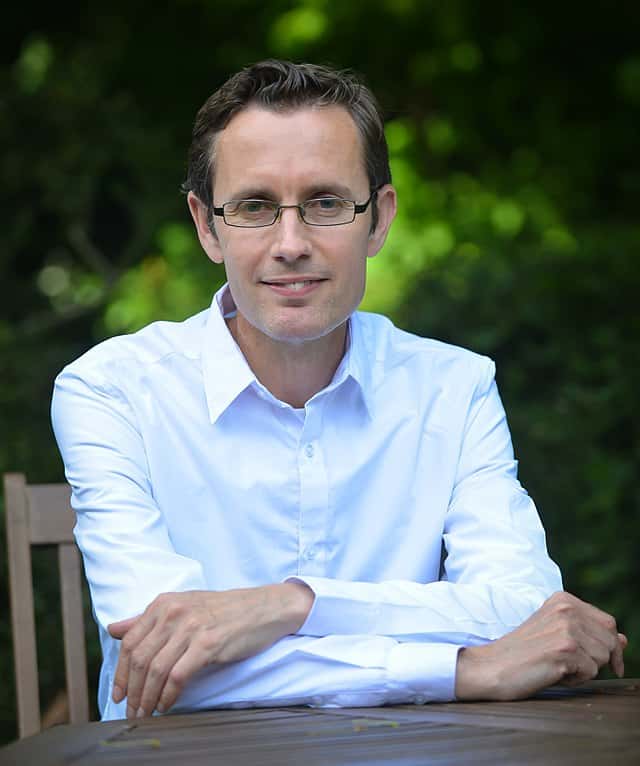
Tom Butler-Bowdon ( born 1967) is a non-fiction author based in Oxford, England. Butler-Bowdon is most notable for the 50 Classics series of books, which provide commentaries on key writings in personal development, psychology, philosophy and economics. The series is published in English by Nicholas Brealey Publishing, and has been translated into 23 languages. Referring to his earlier work on the personal development literature, Butler-Bowdon was described by USA Today as “a true scholar of this type of literature”. His 50 Self-Help Classics won the 2004 Benjamin Franklin Award (US) for the Psychology/Self-Help category.
Read More About Tom Butler-Bowdon / Source
Søren Kierkegaard
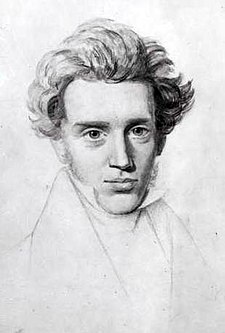
Søren Aabye Kierkegaard ( 5 May 1813 – 11 November 1855) was a Danish philosopher, theologian, poet, social critic, and religious author who is widely considered to be the first existentialist philosopher. He wrote critical texts on organized religion, Christendom, morality, ethics, psychology, and the philosophy of religion, displaying a fondness for metaphor, irony, and parables. Much of his philosophical work deals with the issues of how one lives as a “single individual”, giving priority to concrete human reality over abstract thinking and highlighting the importance of personal choice and commitment. He was against literary critics who defined idealist intellectuals and philosophers of his time, and thought that Swedenborg, Hegel, Fichte, Schelling, Schlegel, and Hans Christian Andersen were all “understood” far too quickly by “scholars”.Kierkegaard’s theological work focuses on Christian ethics, the institution of the Church, the differences between purely objective proofs of Christianity, the infinite qualitative distinction between man and God, and the individual’s subjective relationship to the God-Man Jesus the Christ, which came through faith.
Read More About Søren Kierkegaard / Source
Zeno of Elea

Zeno of Elea ( c. 495 – c. 430 BC) was a pre-Socratic Greek philosopher of Magna Graecia and a member of the Eleatic School founded by Parmenides. Aristotle called him the inventor of the dialectic. He is best known for his paradoxes, which Bertrand Russell described as “immeasurably subtle and profound”.
Read More About Zeno of Elea / Source
Protagoras
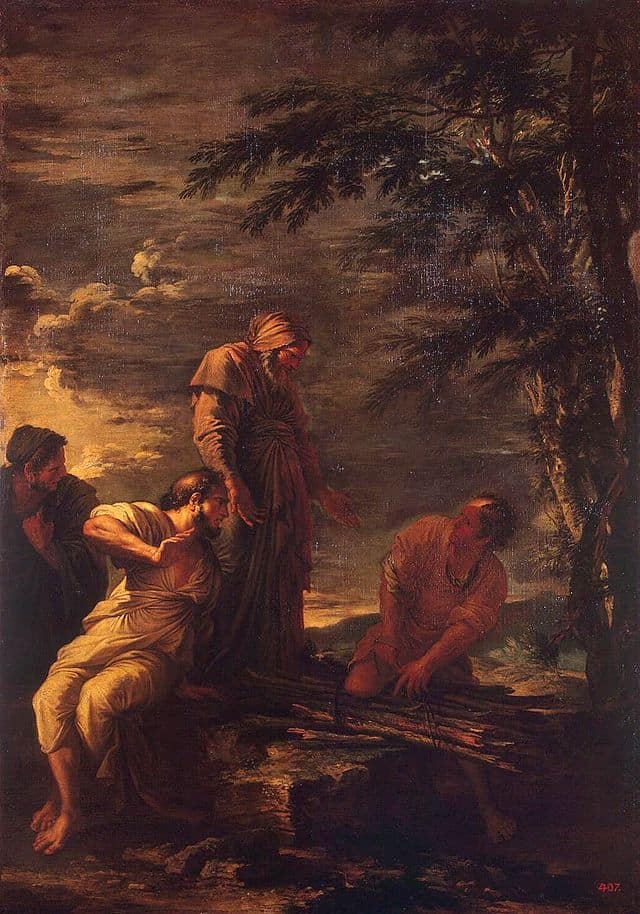
Protagoras ( c. 490 BC – c. 420 BC) was a pre-Socratic Greek philosopher. He is numbered as one of the sophists by Plato. In his dialogue Protagoras, Plato credits him with inventing the role of the professional sophist.
Protagoras also is believed to have created a major controversy during ancient times through his statement that, “Man is the measure of all things”, interpreted by Plato to mean that there is no objective truth. Whatever individuals deem to be the truth is true. Although there is reason to question the extent of the interpretation of his arguments that has followed, that concept of individual relativity was atypical for the time, and contrasted with other philosophical doctrines that claimed the universe was based on something objective, outside human influence or perceptions.
Read More About Protagoras / Source
John Stuart Mill
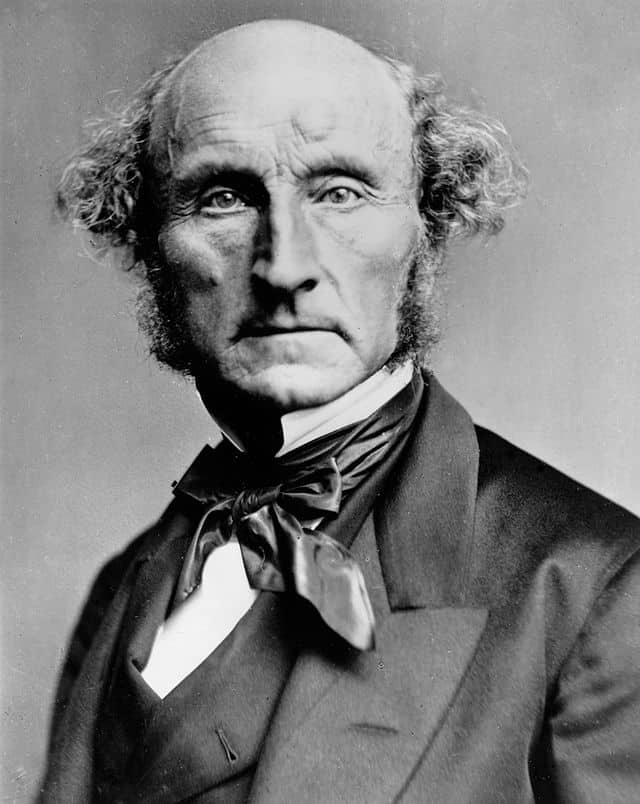
John Stuart Mill (20 May 1806 – 7 May 1873), usually cited as J. S. Mill, was an English philosopher, political economist, and civil servant. One of the most influential thinkers in the history of classical liberalism, he contributed widely to social theory, political theory, and political economy. Dubbed “the most influential English-speaking philosopher of the nineteenth century”, he conceived of liberty as justifying the freedom of the individual in opposition to unlimited state and social control.Mill was a proponent of utilitarianism, an ethical theory developed by his predecessor Jeremy Bentham. He contributed to the investigation of scientific methodology, though his knowledge of the topic was based on the writings of others, notably William Whewell, John Herschel, and Auguste Comte, and research carried out for Mill by Alexander Bain. He engaged in written debate with Whewell.A member of the Liberal Party and author of the early feminist work The Subjection of Women, Mill was also the second Member of Parliament to call for women’s suffrage after Henry Hunt in 1832.
Read More About John Stuart Mill / Source
Ibn Taymiyyah

Taqī ad-Dīn Aḥmad ibn Abd al-Halim ibn Abd al-Salam al-Numayri al-Ḥarrānī ( January 22, 1263 – September 26, 1328), known simply Ibn Taymiyyah (ابن تيمية) for short, was a controversial Muslim scholar muhaddith, theologian, judge, jurisconsult, who some have argued was a philosopher, and whom Rashid Rida considered as the renewer of the 7th century. He is known for his diplomatic involvement with Ilkhanid ruler Ghazan Khan and for his victorious achievement at the Battle of Marj al-Saffar which ended the Mongol invasions of the Levant. A member of the Hanbali school, Ibn Taymiyyah’s iconoclastic views on widely accepted Sunni doctrines of his time such as the veneration of saints and the visitation to their tomb-shrines made him unpopular with many scholars and rulers of the time, under whose orders he was imprisoned several times.A polarising figure in his own times and in the centuries that followed, Ibn Taymiyyah has become one of the most influential medieval writers in contemporary Islam, where his particular interpretations of the Qur’an and the Sunnah and his rejection of some aspects of classical Islamic tradition are believed to have had considerable influence on contemporary ultra-conservative ideologies such as Salafism, and Jihadism. Particular aspects of his teachings had a profound influence on Muhammad ibn Abd al-Wahhab, the founder of the Hanbali reform movement practiced in Saudi Arabia, and on other later Wahabi scholars.
Read More About Ibn Taymiyyah / Source
Sigmund Freud
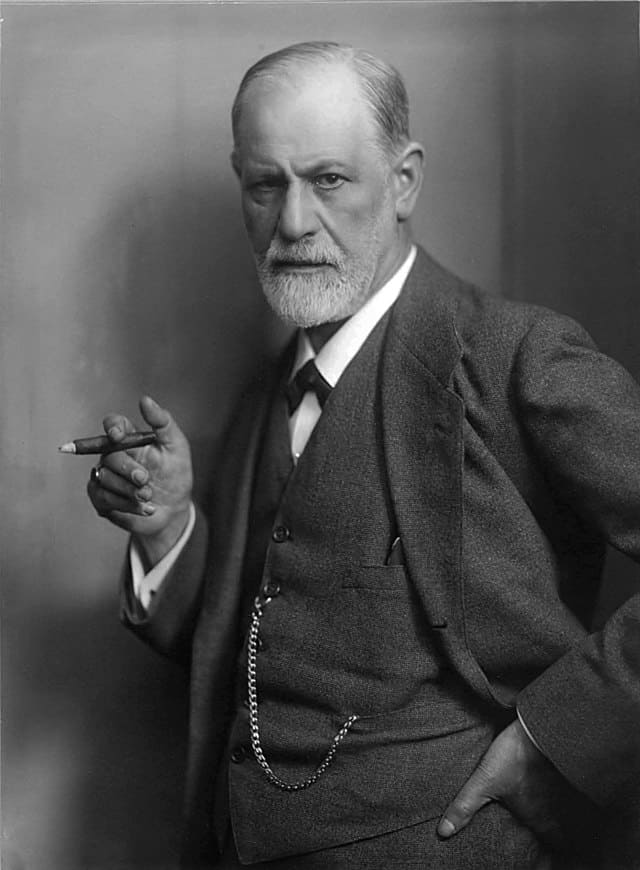
Sigmund Freud ( FROYD, 6 May 1856 – 23 September 1939) was an Austrian neurologist and the founder of psychoanalysis, a clinical method for treating psychopathology through dialogue between a patient and a psychoanalyst.Freud was born to Galician Jewish parents in the Moravian town of Freiberg, in the Austrian Empire. He qualified as a doctor of medicine in 1881 at the University of Vienna. Upon completing his habilitation in 1885, he was appointed a docent in neuropathology and became an affiliated professor in 1902. Freud lived and worked in Vienna, having set up his clinical practice there in 1886. In 1938, Freud left Austria to escape Nazi persecution. He died in exile in the United Kingdom in 1939.
In founding psychoanalysis, Freud developed therapeutic techniques such as the use of free association and discovered transference, establishing its central role in the analytic process. Freud’s redefinition of sexuality to include its infantile forms led him to formulate the Oedipus complex as the central tenet of psychoanalytical theory.
Read More About Sigmund Freud / Source
Jurgen Habermas
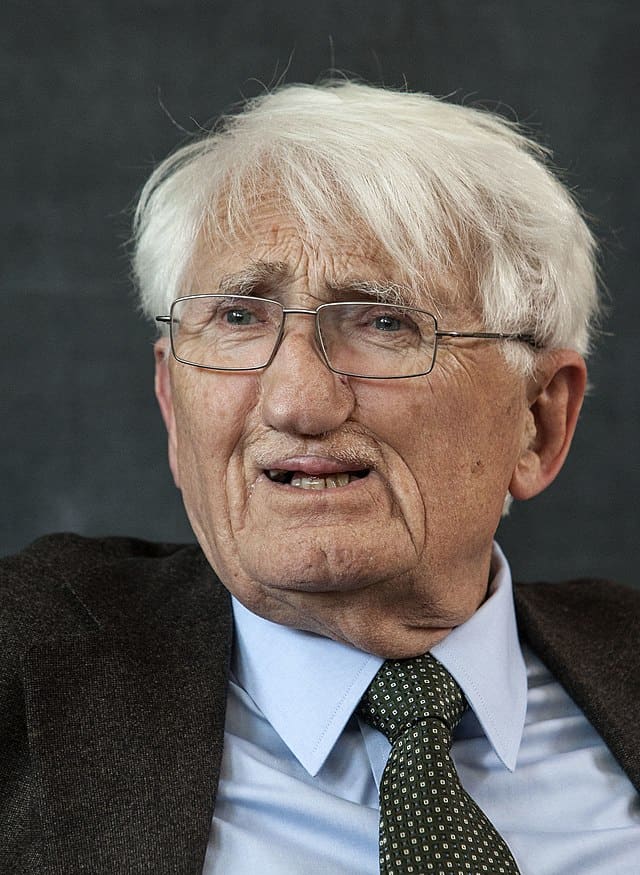
Jürgen Habermas (born 18 June 1929) is a German philosopher and sociologist in the tradition of critical theory and pragmatism. His work addresses communicative rationality and the public sphere.
Associated with the Frankfurt School, Habermas’s work focuses on the foundations of epistemology and social theory, the analysis of advanced capitalism and democracy, the rule of law in a critical social-evolutionary context, albeit within the confines of the natural law tradition, and contemporary politics, particularly German politics. Habermas’s theoretical system is devoted to revealing the possibility of reason, emancipation, and rational-critical communication latent in modern institutions and in the human capacity to deliberate and pursue rational interests. Habermas is known for his work on the concept of modernity, particularly with respect to the discussions of rationalization originally set forth by Max Weber. He has been influenced by American pragmatism, action theory, and poststructuralism.
Read More About Jurgen Habermas / Source
Ludwig Wittgenstein
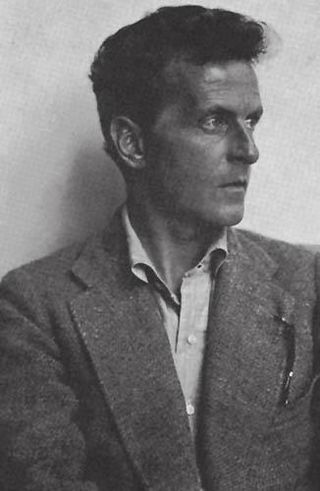
Ludwig Josef Johann Wittgenstein ( 26 April 1889 – 29 April 1951) was an Austrian-British philosopher who worked primarily in logic, the philosophy of mathematics, the philosophy of mind, and the philosophy of language. From 1929 to 1947, Wittgenstein taught at the University of Cambridge. During his lifetime he published just one slim book (the 75-page Tractatus Logico-Philosophicus, 1921), one article (“Some Remarks on Logical Form”, 1929), one book review and a children’s dictionary. His voluminous manuscripts were edited and published posthumously. The first and best-known of this posthumous series is the 1953 book Philosophical Investigations. His teacher, Bertrand Russell, described Wittgenstein as perhaps the most perfect example I have ever known of genius as traditionally conceived; passionate, profound, intense, and dominating.Born in Vienna into one of Europe’s richest families, he inherited a fortune from his father in 1913. He initially made some donations to artists and writers, and then, in a period of severe personal depression after the First World War, he gave away his entire fortune to his brothers and sisters.
Read More About Ludwig Wittgenstein / Source
William James
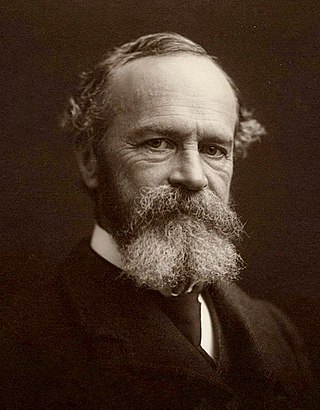
William James (January 11, 1842 – August 26, 1910) was an American philosopher and psychologist, and the first educator to offer a psychology course in the United States. James is considered to be a leading thinker of the late nineteenth century, one of the most influential philosophers of the United States, and the “Father of American psychology”.Along with Charles Sanders Peirce, James established the philosophical school known as pragmatism, and is also cited as one of the founders of functional psychology. A Review of General Psychology analysis, published in 2002, ranked James as the 14th most eminent psychologist of the 20th century. A survey published in American Psychologist in 1991 ranked James’s reputation in second place, after Wilhelm Wundt, who is widely regarded as the founder of experimental psychology. James also developed the philosophical perspective known as radical empiricism. James’s work has influenced philosophers and academics such as Émile Durkheim, W. E. B. Du Bois, Edmund Husserl, Bertrand Russell, Ludwig Wittgenstein, Hilary Putnam, Richard Rorty, and Marilynne Robinson.Born into a wealthy family, James was the son of the Swedenborgian theologian Henry James Sr. and the brother of both the prominent novelist Henry James and the diarist Alice James.
Read More About William James / Source
Charles Sanders Peirce
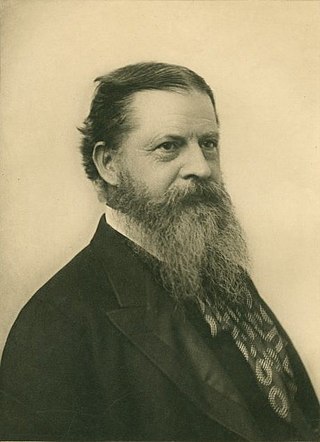
Charles Sanders Peirce ( PURSS; September 10, 1839 – April 19, 1914) was an American philosopher, logician, mathematician, and scientist who is sometimes known as “the father of pragmatism”.
Educated as a chemist and employed as a scientist for thirty years, Peirce considered himself, first and foremost, a logician. He made major contributions to logic, a subject that, for him, encompassed much of what is now called epistemology and the philosophy of science. He saw logic as the formal branch of semiotics, of which he is a founder, which foreshadowed the debate among logical positivists and proponents of philosophy of language that dominated 20th-century Western philosophy. Additionally, he defined the concept of abductive reasoning, as well as rigorously formulated mathematical induction and deductive reasoning. As early as 1886, he saw that logical operations could be carried out by electrical switching circuits. The same idea was used decades later to produce digital computers.In 1934, the philosopher Paul Weiss called Peirce “the most original and versatile of American philosophers and America’s greatest logician”. Webster’s Biographical Dictionary said in 1943 that Peirce was “now regarded as the most original thinker and greatest logician of his time”.
Read More About Charles Sanders Peirce / Source
Richard Koch
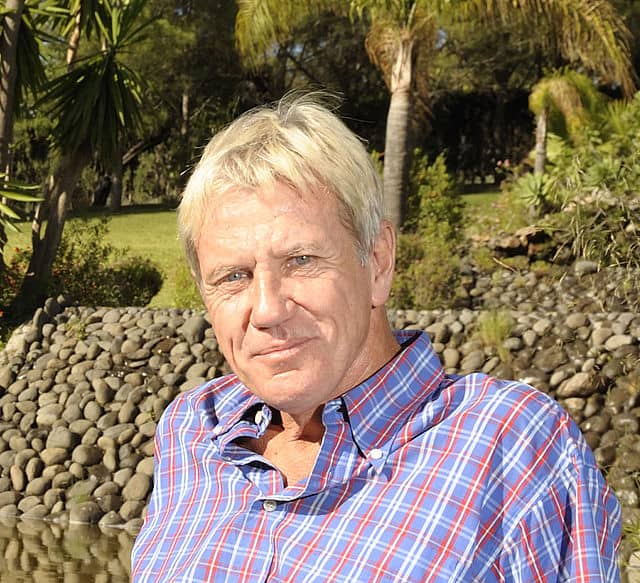
Richard John Koch (born 28 July 1950 in London) is a British management consultant, venture capital investor and author of books on management, marketing and lifestyle. Koch has an M.A. from Oxford University and an M.B.A. from The Wharton School. Initially Koch worked as a consultant with the Boston Consulting Group. Subsequently he became a partner at Bain and Company. After leaving Bain in 1983 he co-founded L.E.K. Consulting with Iain Evans and James Lawrence.
Read More About Richard Koch / Source
Pierre Bourdieu
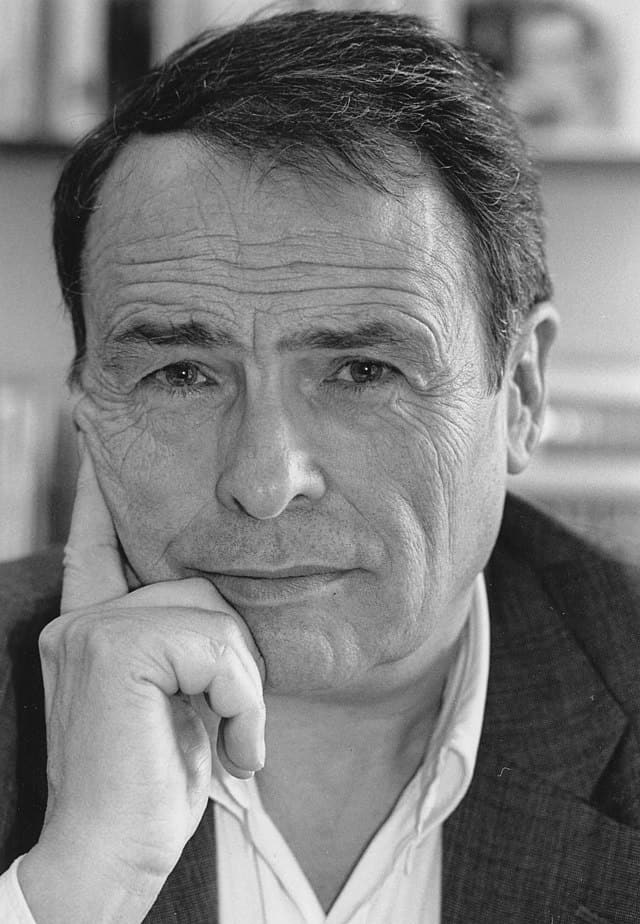
Pierre Bourdieu ( 1 August 1930 – 23 January 2002) was a French sociologist, anthropologist, philosopher and public intellectual. Bourdieu’s major contributions to the sociology of education, the theory of sociology, and sociology of aesthetics have achieved wide influence in several related academic fields (e.g. anthropology, media and cultural studies, education), popular culture, and the arts. During his academic career he was primarily associated with the School for Advanced Studies in the Social Sciences in Paris and the Collège de France.
Bourdieu’s work was primarily concerned with the dynamics of power in society, especially the diverse and subtle ways in which power is transferred and social order is maintained within and across generations. In conscious opposition to the idealist tradition of much of Western philosophy, his work often emphasized the corporeal nature of social life and stressed the role of practice and embodiment in social dynamics. Building upon the theories of Martin Heidegger, Ludwig Wittgenstein, Maurice Merleau-Ponty, Edmund Husserl, Georges Canguilhem, Karl Marx, Gaston Bachelard, Max Weber, Émile Durkheim, Claude Lévi-Strauss, Erwin Panofsky and Marcel Mauss among others, his research pioneered novel investigative frameworks and methods, and introduced such influential concepts as cultural, social, and symbolic forms of capital (as opposed to traditional economic forms of capital), the cultural reproduction, the habitus, the field or location, and symbolic violence. Another notable influence on Bourdieu was Blaise Pascal, after whom Bourdieu titled his Pascalian Meditations.
Read More About Pierre Bourdieu / Source
Fyodor Dostoevsky
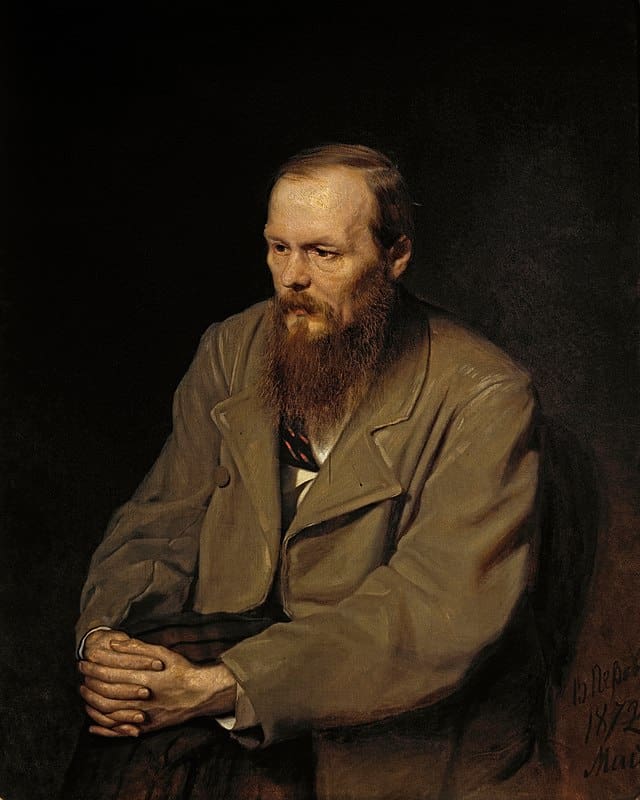
Fyodor Mikhailovich Dostoevsky ( 11 November 1821 – 9 February 1881), sometimes transliterated Dostoyevsky, was a Russian novelist, philosopher, short story writer, essayist, and journalist. Dostoevsky’s literary works explore human psychology in the troubled political, social, and spiritual atmospheres of 19th-century Russia, and engage with a variety of philosophical and religious themes. His most acclaimed works include Crime and Punishment (1866), The Idiot (1869), Demons (1872), and The Brothers Karamazov (1880). Dostoevsky’s body of works consists of 12 novels, four novellas, 16 short stories, and numerous other works. Many literary critics rate him as one of the greatest psychological novelists in world literature. His 1864 novel Notes from Underground is considered to be one of the first works of existentialist literature.
Born in Moscow in 1821, Dostoevsky was introduced to literature at an early age through fairy tales and legends, and through books by Russian and foreign authors. His mother died in 1837 when he was 15, and around the same time, he left school to enter the Nikolayev Military Engineering Institute. After graduating, he worked as an engineer and briefly enjoyed a lavish lifestyle, translating books to earn extra money.
Read More About Fyodor Dostoevsky / Source
Augustine of Hippo
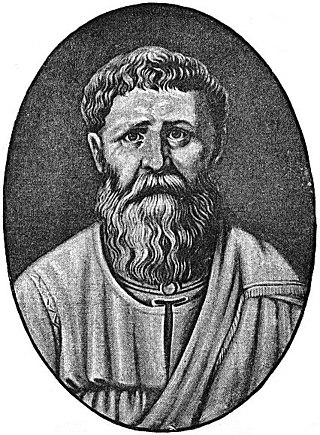
Augustine of Hippo (; Latin: Aurelius Augustinus Hipponensis; 13 November 354 – 28 August 430), also known as Saint Augustine, was a theologian, philosopher, and the bishop of Hippo Regius in Numidia, Roman North Africa. His writings influenced the development of Western philosophy and Western Christianity, and he is viewed as one of the most important Church Fathers of the Latin Church in the Patristic Period. His many important works include The City of God, On Christian Doctrine, and Confessions.
According to his contemporary, Jerome, Augustine “established anew the ancient Faith”. In his youth he was drawn to the major Persian religion, Manichaeism, and later to Neoplatonism. After his conversion to Christianity and baptism in 386, Augustine developed his own approach to philosophy and theology, accommodating a variety of methods and perspectives. Believing the grace of Christ was indispensable to human freedom, he helped formulate the doctrine of original sin and made significant contributions to the development of just war theory. When the Western Roman Empire began to disintegrate, Augustine imagined the Church as a spiritual City of God, distinct from the material Earthly City. His thoughts profoundly influenced the medieval worldview. The segment of the Church that adhered to the concept of the Trinity as defined by the Council of Nicaea and the Council of Constantinople closely identified with Augustine’s On the Trinity.
Read More About Augustine of Hippo / Source
William Shakespeare
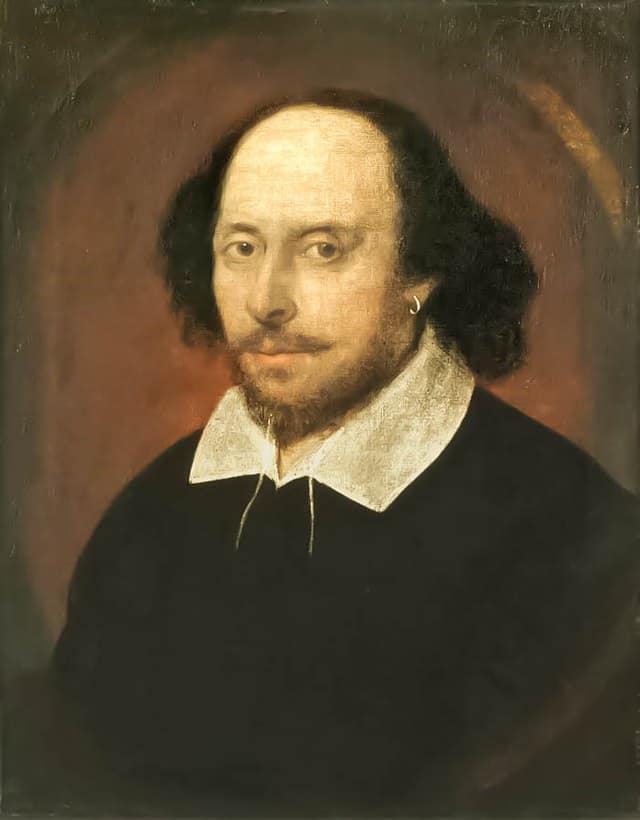
William Shakespeare ( 26 April 1564 – 23 April 1616) was an English playwright, poet, and actor, widely regarded as the greatest writer in the English language and the world’s greatest dramatist. He is often called England’s national poet and the “Bard of Avon” (or simply “the Bard”). His extant works, including collaborations, consist of some 39 plays, 154 sonnets, two long narrative poems, and a few other verses, some of uncertain authorship. His plays have been translated into every major living language and are performed more often than those of any other playwright. They also continue to be studied and reinterpreted.
Shakespeare was born and raised in Stratford-upon-Avon, Warwickshire. At the age of 18, he married Anne Hathaway, with whom he had three children: Susanna and twins Hamnet and Judith. Sometime between 1585 and 1592, he began a successful career in London as an actor, writer, and part-owner of a playing company called the Lord Chamberlain’s Men, later known as the King’s Men. At age 49 (around 1613), he appears to have retired to Stratford, where he died three years later. Few records of Shakespeare’s private life survive; this has stimulated considerable speculation about such matters as his physical appearance, his sexuality, his religious beliefs, and whether the works attributed to him were written by others.
Read More About William Shakespeare / Source
Jean-Jacques Rousseau
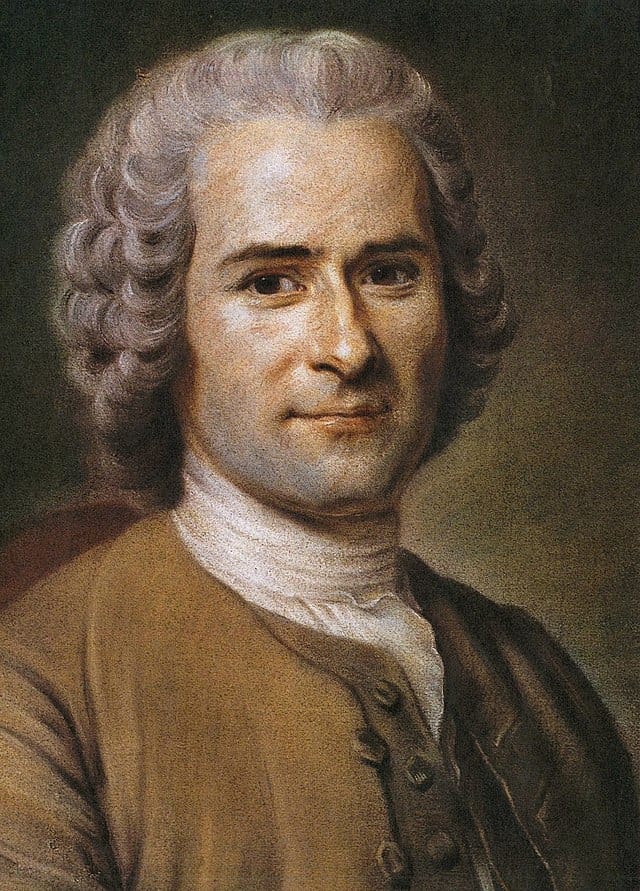
Jean-Jacques Rousseau ( 28 June 1712 – 2 July 1778) was a Genevan philosopher, writer, and composer. His political philosophy influenced the progress of the Enlightenment throughout Europe, as well as aspects of the French Revolution and the development of modern political, economic and educational thought.
His Discourse on Inequality and The Social Contract are cornerstones in modern political and social thought. Rousseau’s sentimental novel Julie, or the New Heloise (1761) was important to the development of preromanticism and romanticism in fiction. His Emile, or On Education (1762) is an educational treatise on the place of the individual in society. Rousseau’s autobiographical writings—the posthumously published Confessions (composed in 1769), which initiated the modern autobiography, and the unfinished Reveries of the Solitary Walker (composed 1776–1778)—exemplified the late-18th-century “Age of Sensibility”, and featured an increased focus on subjectivity and introspection that later characterized modern writing.
Rousseau befriended fellow philosophy writer Denis Diderot in 1742, and would later write about Diderot’s romantic troubles in his Confessions. During the period of the French Revolution, Rousseau was the most popular of the philosophers among members of the Jacobin Club. He was interred as a national hero in the Panthéon in Paris, in 1794, 16 years after his death.
Read More About Jean-Jacques Rousseau / Source
Niccolò Machiavelli
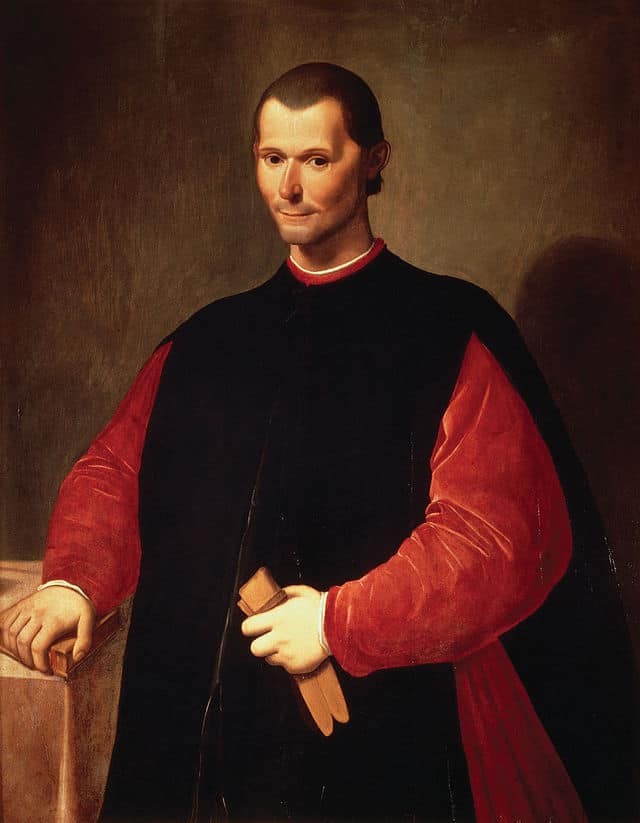
Niccolò di Bernardo dei Machiavelli ( 3 May 1469 – 21 June 1527) was an Italian Renaissance diplomat, philosopher and writer, best known for The Prince (Il Principe), written in 1513. He has often been called the father of modern political philosophy and political science.For many years he served as a senior official in the Florentine Republic with responsibilities in diplomatic and military affairs. He wrote comedies, carnival songs, and poetry. His personal correspondence is of high importance to historians and scholars. He worked as secretary to the Second Chancery of the Republic of Florence from 1498 to 1512, when the Medici were out of power.
Machiavelli’s name came to evoke unscrupulous acts of the sort he advised most famously in The Prince. Machiavelli considered political battles, not through a lens of morality, but as though they are a board game with established rules. His experience showed him that politics have always been played with deception, treachery and crime. He also notably said that a ruler who is establishing a kingdom or a republic, and is criticized for his deeds, including violence, should be excused when the intention and the result is beneficial.
Read More About Niccolò Machiavelli / Source
Averroes
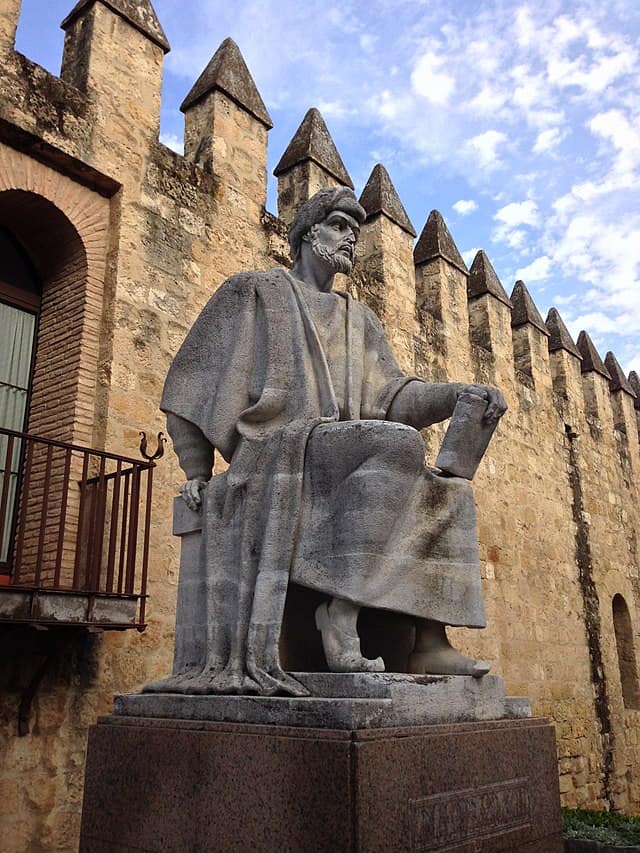
Ibn Rushd ( 14 April 1126 – 11 December 1198), often Latinized as Averroes, was a Muslim Andalusian polymath and jurist who wrote about many subjects, including philosophy, theology, medicine, astronomy, physics, psychology, mathematics, Islamic jurisprudence and law, and linguistics. The author of more than 100 books and treatises, his philosophical works include numerous commentaries on Aristotle, for which he was known in the western world as The Commentator and Father of rationalism. Ibn Rushd also served as a chief judge and a court physician for the Almohad Caliphate.
He was born in Córdoba in 1126 to a family of prominent judges—his grandfather was the chief judge of the city. In 1169 he was introduced to the caliph Abu Yaqub Yusuf, who was impressed with his knowledge, became his patron and commissioned many of Averroes’ commentaries. Averroes later served multiple terms as a judge in Seville and Córdoba. In 1182, he was appointed as court physician and the chief judge of Córdoba. After Abu Yusuf’s death in 1184, he remained in royal favor until he fell into disgrace in 1195. He was targeted on various charges—likely for political reasons—and was exiled to nearby Lucena. He returned to royal favor shortly before his death on 11 December 1198.
Read More About Averroes / Source
Thomas Hobbes
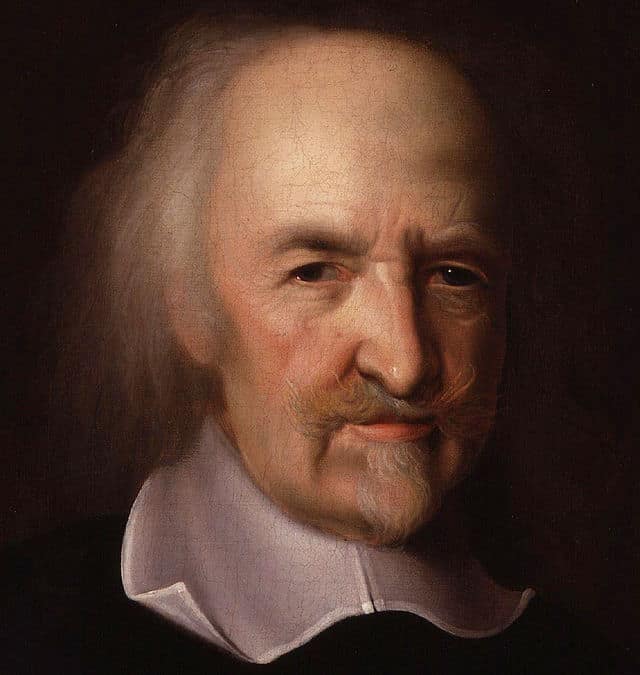
Thomas Hobbes ( HOBZ; sometimes known as Thomas Hobbes of Malmesbury; 5 April 1588 – 4 December 1679) was an English philosopher, considered to be one of the founders of modern political philosophy. Hobbes is best known for his 1651 book Leviathan, in which he expounds an influential formulation of social contract theory. In addition to political philosophy, Hobbes contributed to a diverse array of other fields, including history, jurisprudence, geometry, the physics of gases, theology, and ethics, as well as philosophy in general.
Read More About Thomas Hobbes / Source
Roland Barthes
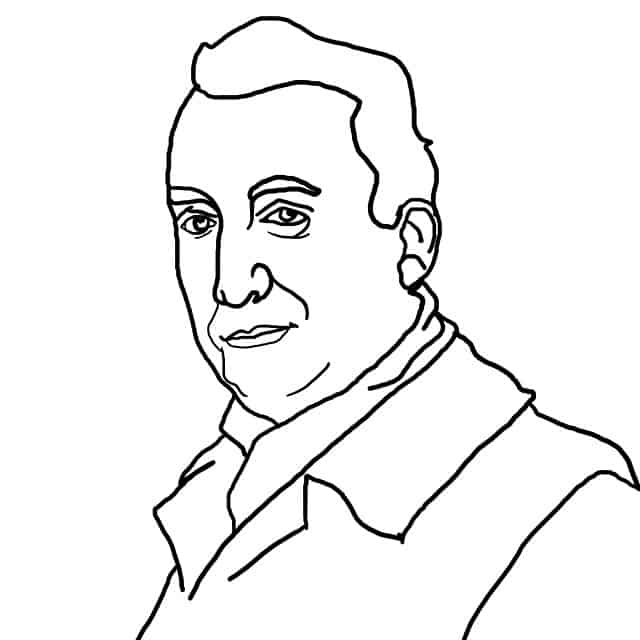
Roland Gérard Barthes ( 12 November 1915 – 26 March 1980) was a French literary theorist, essayist, philosopher, critic, and semiotician. Barthes’s ideas explored a diverse range of fields and he influenced the development of many schools of theory, including structuralism, semiotics, social theory, design theory, anthropology, and post-structuralism. He was particularly known for developing and extending the field of semiotics through the analysis of a variety of sign systems, mainly derived from Western popular culture.During his academic career he was primarily associated with the École des Hautes Études en Sciences Sociales (EHESS) and the Collège de France.
Read More About Roland Barthes / Source
Albert Camus
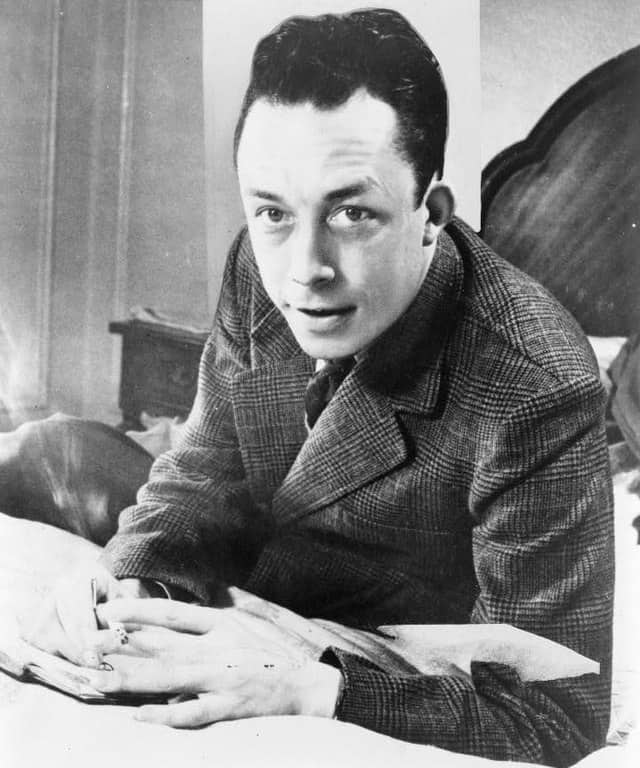
Albert Camus ( 7 November 1913 – 4 January 1960) was a French philosopher, author, and journalist. He won the Nobel Prize in Literature at the age of 44 in 1957, the second-youngest recipient in history. His works include The Stranger, The Plague, The Myth of Sisyphus, The Fall, and The Rebel.
Camus was born in Algeria (a French colony at the time) to French Pieds Noirs parents. His citizenship was French. He spent his childhood in a poor neighbourhood and later studied philosophy at the University of Algiers. He was in Paris when the Germans invaded France during World War II in 1940. Camus tried to flee but finally joined the French Resistance where he served as editor-in-chief at Combat, an outlawed newspaper. After the war, he was a celebrity figure and gave many lectures around the world. He married twice but had many extramarital affairs. Camus was politically active; he was part of the left that opposed the Soviet Union because of its totalitarianism. Camus was a moralist and leaned towards anarcho-syndicalism. He was part of many organisations seeking European integration. During the Algerian War (1954–1962), he kept a neutral stance, advocating for a multicultural and pluralistic Algeria, a position that caused controversy and was rejected by most parties.
Read More About Albert Camus / Source
Thomas Jefferson
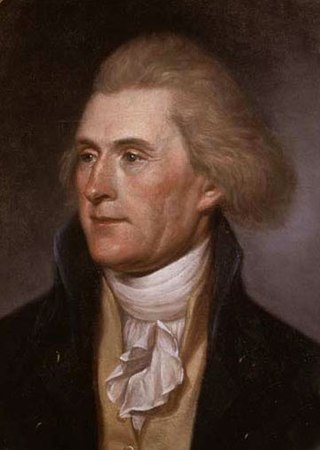
Thomas Jefferson (April 13, 1743 – July 4, 1826) was an American statesman, diplomat, lawyer, architect, philosopher, and Founding Father who served as the third president of the United States from 1801 to 1809. He had previously served as the second vice president of the United States between 1797 and 1801. The principal author of the Declaration of Independence, Jefferson was a proponent of democracy, republicanism, and individual rights, motivating American colonists to break from the Kingdom of Great Britain and form a new nation; he produced formative documents and decisions at both the state and national levels.
During the American Revolution, Jefferson represented Virginia in the Continental Congress that adopted the Declaration of Independence. As a Virginia legislator, he drafted a state law for religious freedom. He served as the second Governor of Virginia from 1779 to 1781, during the American Revolutionary War. In 1785, Jefferson was appointed the United States Minister to France, and subsequently, the nation’s first Secretary of State under President George Washington from 1790 to 1793. Jefferson and James Madison organized the Democratic-Republican Party to oppose the Federalist Party during the formation of the First Party System. With Madison, he anonymously wrote the provocative Kentucky and Virginia Resolutions in 1798 and 1799, which sought to strengthen states’ rights by nullifying the federal Alien and Sedition Acts.
Read More About Thomas Jefferson / Source
Anaximander
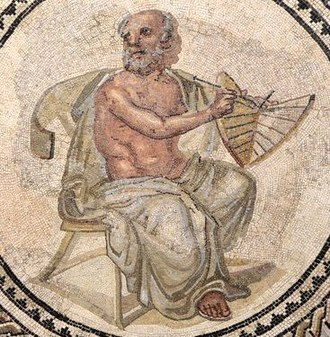
Anaximander ( c. 610 – c. 546 BC) was a pre-Socratic Greek philosopher who lived in Miletus, a city of Ionia (in modern-day Turkey). He belonged to the Milesian school and learned the teachings of his master Thales. He succeeded Thales and became the second master of that school where he counted Anaximenes and, arguably, Pythagoras amongst his pupils.Little of his life and work is known today. According to available historical documents, he is the first philosopher known to have written down his studies, although only one fragment of his work remains. Fragmentary testimonies found in documents after his death provide a portrait of the man.
Anaximander was an early proponent of science and tried to observe and explain different aspects of the universe, with a particular interest in its origins, claiming that nature is ruled by laws, just like human societies, and anything that disturbs the balance of nature does not last long. Like many thinkers of his time, Anaximander’s philosophy included contributions to many disciplines. In astronomy, he attempted to describe the mechanics of celestial bodies in relation to the Earth. In physics, his postulation that the indefinite (or apeiron) was the source of all things led Greek philosophy to a new level of conceptual abstraction. His knowledge of geometry allowed him to introduce the gnomon in Greece. He created a map of the world that contributed greatly to the advancement of geography. He was also involved in the politics of Miletus and was sent as a leader to one of its colonies.
Read More About Anaximander / Source
Marcus Aurelius
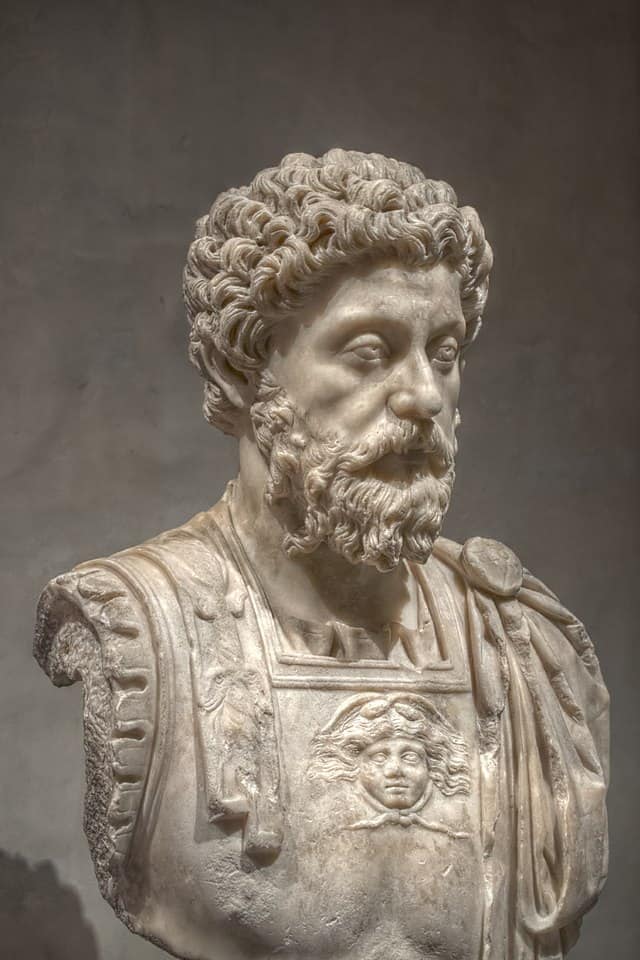
Marcus Aurelius Antoninus ( 26 April 121 – 17 March 180 AD) was Roman emperor from 161 to 180 and a Stoic philosopher. He was the last of the rulers known as the Five Good Emperors (a term coined some 13 centuries later by Niccolò Machiavelli), and the last emperor of the Pax Romana, an age of relative peace and stability for the Roman Empire. He served as Roman consul in 140, 145, and 161.
Marcus was born during the reign of Hadrian to the emperor’s nephew, the praetor Marcus Annius Verus, and the heiress Domitia Calvilla. His father died when he was three, and his mother and grandfather, raised Marcus. After Hadrian’s adoptive son, Aelius Caesar, died in 138, the emperor adopted Marcus’s uncle Antoninus Pius as his new heir. In turn, Antoninus adopted Marcus and Lucius, the son of Aelius. Hadrian died that year and Antoninus became emperor. Now heir to the throne, Marcus studied Greek and Latin under tutors such as Herodes Atticus and Marcus Cornelius Fronto. He kept in close correspondence with Fronto for many years afterwards. Marcus married Antoninus’s daughter Faustina in 145. After Antoninus died in 161, Marcus acceded to the throne alongside his adoptive brother, who took the name Lucius Verus.
Read More About Marcus Aurelius / Source
Baruch Spinoza
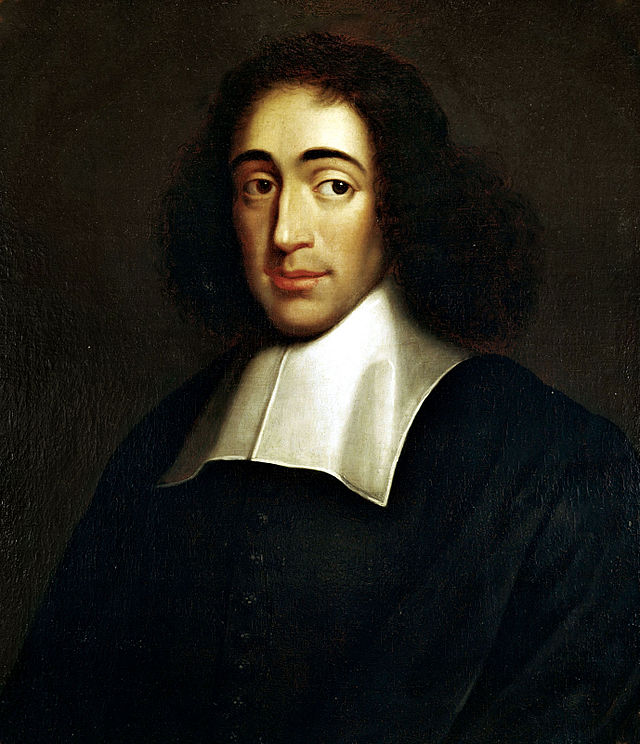
Baruch (de) Spinoza ( 24 November 1632 – 21 February 1677) was a Dutch philosopher of Portuguese Sephardi origin. One of the early thinkers of the Enlightenment and modern biblical criticism, including modern conceptions of the self and the universe, he came to be considered one of the great rationalists of 17th-century philosophy. Inspired by the groundbreaking ideas of René Descartes, Spinoza became a leading philosophical figure of the Dutch Golden Age. Spinoza’s given name, which means “Blessed”, varies among different languages. In Hebrew, it is written ברוך שפינוזה. In the Netherlands he used the Portuguese name Bento. In his Latin and Dutch works, he used Latin: Benedictus de Spinoza.
Spinoza was raised in the Portuguese-Jewish community in Amsterdam. He developed highly controversial ideas regarding the authenticity of the Hebrew Bible and the nature of the Divine. Jewish religious authorities issued a herem (חרם) against him, causing him to be effectively expelled and shunned by Jewish society at age 23, including by his own family. His books were later added to the Catholic Church’s Index of Forbidden Books. He was frequently called an “atheist” by contemporaries, although nowhere in his work does Spinoza argue against the existence of God.
Read More About Baruch Spinoza / Source
Ralph Waldo Emerson
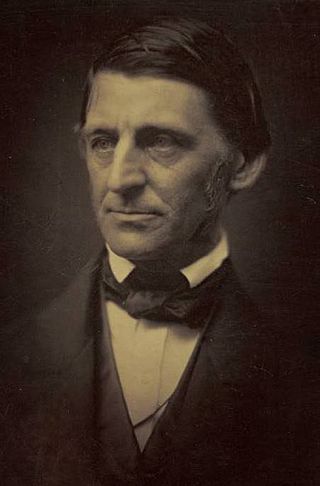
Ralph Waldo Emerson (May 25, 1803 – April 27, 1882), who went by his middle name Waldo, was an American essayist, lecturer, philosopher, and poet who led the transcendentalist movement of the mid-19th century. He was seen as a champion of individualism and a prescient critic of the countervailing pressures of society, and he disseminated his thoughts through dozens of published essays and more than 1,500 public lectures across the United States.
Emerson gradually moved away from the religious and social beliefs of his contemporaries, formulating and expressing the philosophy of transcendentalism in his 1836 essay “Nature”. Following this work, he gave a speech entitled “The American Scholar” in 1837, which Oliver Wendell Holmes Sr. considered to be America’s “intellectual Declaration of Independence.”Emerson wrote most of his important essays as lectures first and then revised them for print. His first two collections of essays, Essays: First Series (1841) and Essays: Second Series (1844), represent the core of his thinking. They include the well-known essays “Self-Reliance”, “The Over-Soul”, “Circles”, “The Poet”, and “Experience.” Together with “Nature”, these essays made the decade from the mid-1830s to the mid-1840s Emerson’s most fertile period. Emerson wrote on a number of subjects, never espousing fixed philosophical tenets, but developing certain ideas such as individuality, freedom, the ability for mankind to realize almost anything, and the relationship between the soul and the surrounding world.
Read More About Ralph Waldo Emerson / Source
Mary Wollstonecraft
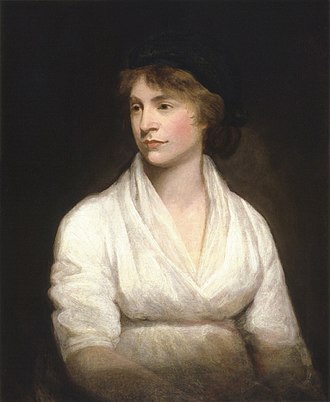
Mary Wollstonecraft ( 27 April 1759 – 10 September 1797) was an English writer, philosopher, and advocate of women’s rights. Until the late 20th century, Wollstonecraft’s life, which encompassed several unconventional personal relationships at the time, received more attention than her writing. Today Wollstonecraft is regarded as one of the founding feminist philosophers, and feminists often cite both her life and her works as important influences.
During her brief career, she wrote novels, treatises, a travel narrative, a history of the French Revolution, a conduct book, and a children’s book. Wollstonecraft is best known for A Vindication of the Rights of Woman (1792), in which she argues that women are not naturally inferior to men, but appear to be only because they lack education. She suggests that both men and women should be treated as rational beings and imagines a social order founded on reason.
After Wollstonecraft’s death, her widower published a Memoir (1798) of her life, revealing her unorthodox lifestyle, which inadvertently destroyed her reputation for almost a century. However, with the emergence of the feminist movement at the turn of the twentieth century, Wollstonecraft’s advocacy of women’s equality and critiques of conventional femininity became increasingly important.
Read More About Mary Wollstonecraft / Source
Avicenna
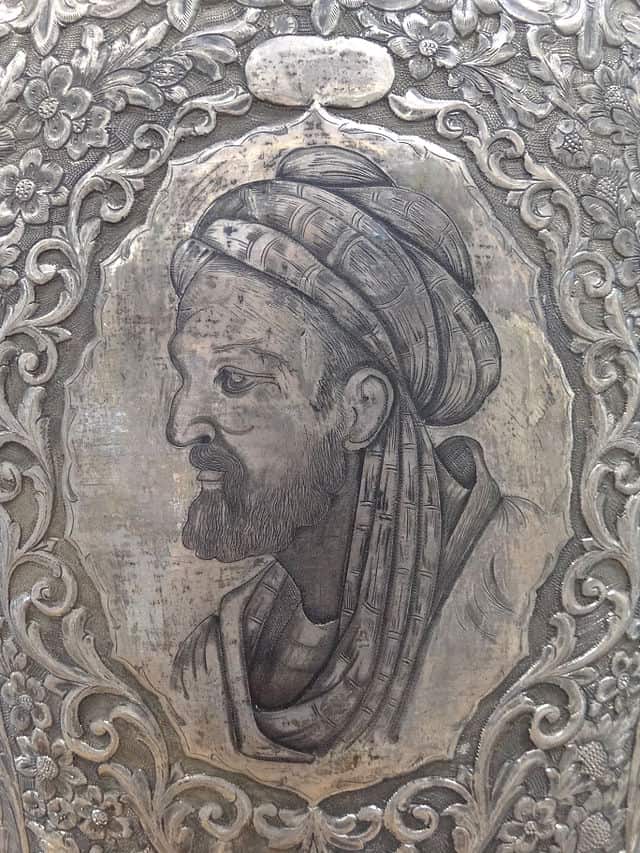
Ibn Sina, also known as Abu Ali Sina, Pur Sina, and often known in the West as Avicenna (c. 980 – June 1037), was a Persian polymath who is regarded as one of the most significant physicians, astronomers, thinkers and writers of the Islamic Golden Age, and the father of early modern medicine. Sajjad H. Rizvi has called Avicenna “arguably the most influential philosopher of the pre-modern era”. He was a Muslim Peripatetic philosopher influenced by Aristotelian philosophy. Of the 450 works he is believed to have written, around 240 have survived, including 150 on philosophy and 40 on medicine.His most famous works are The Book of Healing, a philosophical and scientific encyclopedia, and The Canon of Medicine, a medical encyclopedia which became a standard medical text at many medieval universities and remained in use as late as 1650.Besides philosophy and medicine, Avicenna’s corpus includes writings on astronomy, alchemy, geography and geology, psychology, Islamic theology, logic, mathematics, physics and works of poetry.
Read More About Avicenna / Source
Paul the Apostle
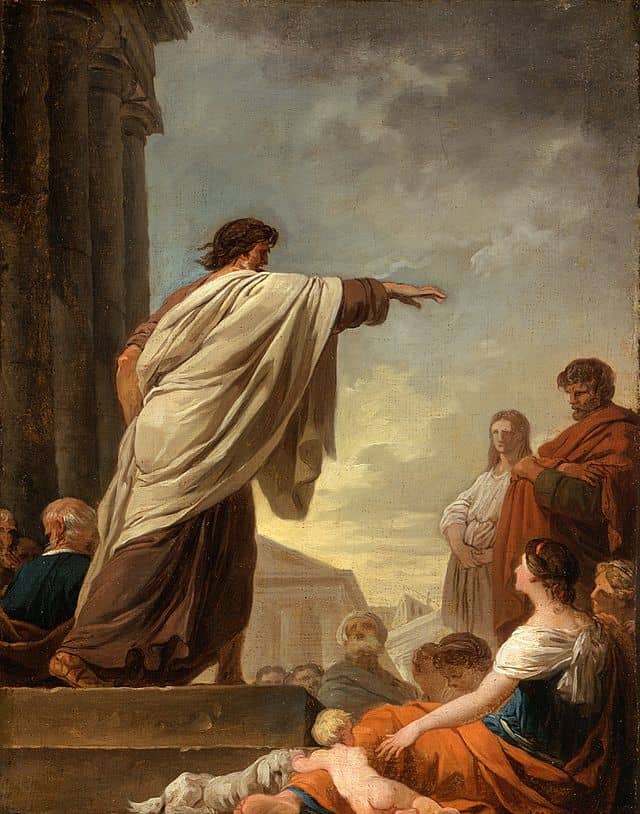
Paul the Apostle ( c. 5 – c. 64/67), commonly known as Saint Paul and also known by his Hebrew name Saul of Tarsus was an apostle (although not one of the Twelve Apostles) who taught the gospel of Christ to the first-century world. Paul is generally considered one of the most important figures of the Apostolic Age and from the mid-30s to the mid-50s AD he founded several Christian communities in Asia Minor and Europe.According to the New Testament book Acts of the Apostles (often simply called Acts), Paul participated in the persecution of the “embryonic Christian movement,” more Hellenised diaspora Jewish members, in the area of Jerusalem, prior to his conversion. In the narrative of Acts, Paul was traveling on the road from Jerusalem to Damascus on a mission to “arrest them and bring them back to Jerusalem” when the ascended Jesus appeared to him in a great bright light. He was struck blind, but after three days his sight was restored by Ananias of Damascus and Paul began to preach that Jesus of Nazareth is the Jewish Messiah and the Son of God. Approximately half of the book of Acts deals with Paul’s life and works.
Read More About Paul the Apostle / Source
J Farkas

János Farkas (27 March 1942 in Budapest – 29 September 1989 in Budapest) was a Hungarian footballer.
During his club career he played for Vasas SC. He earned 33 caps and scored 20 goals for the Hungary national football team from 1961 to 1969, and participated in the 1962 FIFA World Cup, the 1964 European Nations’ Cup, and the 1966 FIFA World Cup. He also won a gold medal in football at the 1964 Summer Olympics. He is particularly remembered for his fabulous goal at the 1966 FIFA World Cup against Brazil, contributing to a sensational 3–1 win against the incumbent champions. He finished his career rather early, at the age of 30, and became a gastronomer. He died at the age of 47 of a heart attack. A youth football tournament was named after him following his death.
Read More About J Farkas / Source
Herbert Marcuse
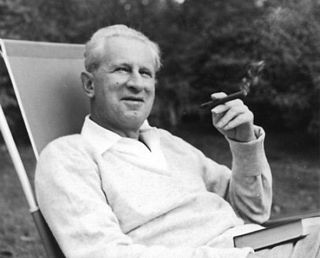
Herbert Marcuse ( July 19, 1898 – July 29, 1979) was a German-American philosopher, sociologist, and political theorist, associated with the Frankfurt School of critical theory. Born in Berlin, Marcuse studied at the Humboldt University of Berlin and then at Freiburg, where he received his PhD. He was a prominent figure in the Frankfurt-based Institute for Social Research – what later became known as the Frankfurt School. He was married to Sophie Wertheim (1924–1951), Inge Neumann (1955–1973), and Erica Sherover (1976–1979). In his written works, he criticized capitalism, modern technology, Soviet Communism and entertainment culture, arguing that they represent new forms of social control. Between 1943 and 1950, Marcuse worked in US government service for the Office of Strategic Services (predecessor of the Central Intelligence Agency) where he criticized the ideology of the Communist Party of the Soviet Union in the book Soviet Marxism: A Critical Analysis (1958). In the 1960s and the 1970s he became known as the preeminent theorist of the New Left and the student movements of West Germany, France, and the United States; some consider him the “father of the New Left”.His best known works are Eros and Civilization (1955) and One-Dimensional Man (1964). His Marxist scholarship inspired many radical intellectuals and political activists in the 1960s and 1970s, both in the United States and internationally.
Read More About Herbert Marcuse / Source
Simone de Beauvoir
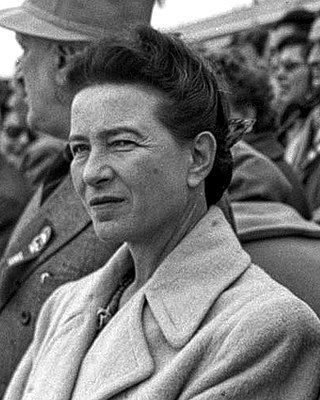
Simone Lucie Ernestine Marie Bertrand de Beauvoir ( 9 January 1908 – 14 April 1986) was a French writer, intellectual, existentialist philosopher, political activist, feminist and social theorist. Though she did not consider herself a philosopher, she had a significant influence on both feminist existentialism and feminist theory.Beauvoir wrote novels, essays, biographies, autobiography and monographs on philosophy, politics, and social issues. She was known for her 1949 treatise The Second Sex, a detailed analysis of women’s oppression and a foundational tract of contemporary feminism; and for her novels, including She Came to Stay and The Mandarins. Her most enduring contribution to literature are her memoirs, notable the first volume, “Mémoires d’une jeune fille rangée” (1958), which have a warmth and descriptive power. She was also known for her open, lifelong relationship with French philosopher Jean-Paul Sartre.
Read More About Simone de Beauvoir / Source
Jakob Johann von Uexküll
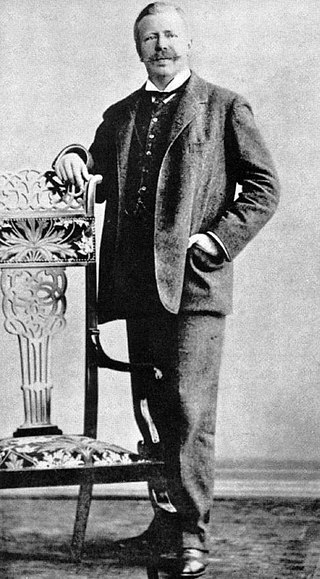
Jakob Johann Freiherr von Uexküll (8 September [O.S. 27 August] 1864 – 25 July 1944) was a Baltic German biologist who worked in the fields of muscular physiology, animal behaviour studies, and the cybernetics of life. However, his most notable contribution is the notion of Umwelt, used by semiotician Thomas Sebeok and philosopher Martin Heidegger. His works established biosemiotics as a field of research.
Read More About Jakob Johann von Uexküll / Source
Graham Priest

Graham Priest (born 1948) is Distinguished Professor of Philosophy at the CUNY Graduate Center, as well as a regular visitor at the University of Melbourne where he was Boyce Gibson Professor of Philosophy and also at the University of St Andrews.
Read More About Graham Priest / Source
Georg Wilhelm Friedrich Hegel
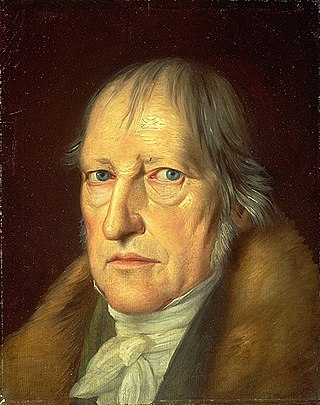
Georg Wilhelm Friedrich Hegel ( 27 August 1770 – 14 November 1831) was a German philosopher and the most important figure in German idealism. He is considered one of the fundamental figures of modern Western philosophy, with his influence extending to the entire range of contemporary philosophical issues, from aesthetics to ontology to politics, both in the analytic and continental tradition.Hegel’s principal achievement was his development of a distinctive articulation of idealism, sometimes termed absolute idealism, in which the dualisms of, for instance, mind and nature and subject and object are overcome. His philosophy of spirit conceptually integrates psychology, the state, history, art, religion and philosophy. His master–slave dialectic has been influential, especially in 20th-century France. Of special importance is his concept of spirit (Geist, sometimes also translated as “mind”) as the historical manifestation of the logical concept – and the “sublation” (Aufhebung, integration without elimination or reduction) – of seemingly contradictory or opposing factors: examples include the apparent opposition between necessity and freedom and between immanence and transcendence.
Read More About Georg Wilhelm Friedrich Hegel / Source
Thales of Miletus
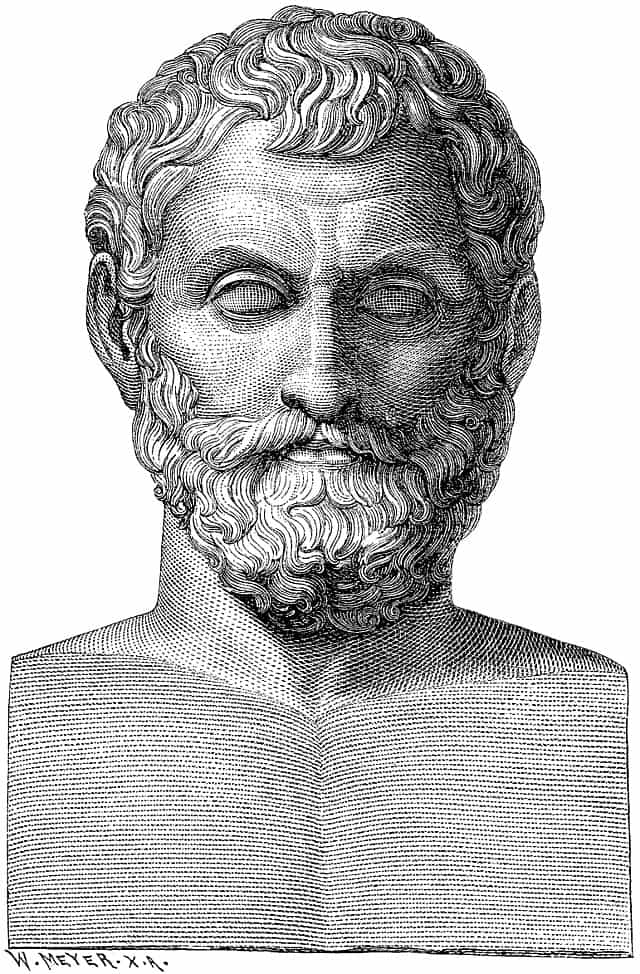
Thales of Miletus ( c. 624/623 – c. 548/545 BC) was a Greek mathematician, astronomer and pre-Socratic philosopher from Miletus in Ionia, Asia Minor. He was one of the Seven Sages of Greece. Many, most notably Aristotle, regarded him as the first philosopher in the Greek tradition, and he is otherwise historically recognized as the first individual in Western civilization known to have entertained and engaged in scientific philosophy.Thales is recognized for breaking from the use of mythology to explain the world and the universe, and instead explaining natural objects and phenomena by naturalistic theories and hypotheses, in a precursor to modern science. Almost all the other pre-Socratic philosophers followed him in explaining nature as deriving from a unity of everything based on the existence of a single ultimate substance, instead of using mythological explanations.
Read More About Thales of Miletus / Source
Michel de Montaigne
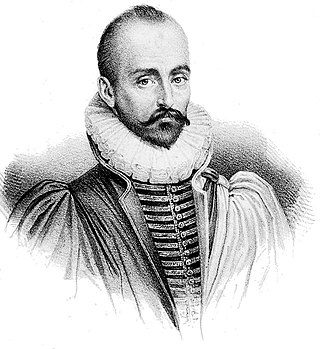
Michel Eyquem de Montaigne ( 28 February 1533 – 13 September 1592), also known as Lord of Montaigne, was one of the most significant philosophers of the French Renaissance, known for popularizing the essay as a literary genre. His work is noted for its merging of casual anecdotes and autobiography with intellectual insight. His massive volume Essais contains some of the most influential essays ever written.
Montaigne had a direct influence on Western writers including Francis Bacon, René Descartes, Blaise Pascal, Voltaire, Jean-Jacques Rousseau, David Hume, Edward Gibbon, Virginia Woolf, Albert Hirschman, William Hazlitt, Ralph Waldo Emerson, John Henry Newman, Karl Marx, Sigmund Freud, Charles Darwin, Friedrich Nietzsche, Stefan Zweig, Eric Hoffer, Isaac Asimov, and possibly, on the later works of William Shakespeare. During his lifetime, Montaigne was admired more as a statesman than as an author. The tendency in his essays to digress into anecdotes and personal ruminations was seen as detrimental to proper style rather than as an innovation, and his declaration that, “I am myself the matter of my book”, was viewed by his contemporaries as self-indulgent. In time, however, Montaigne came to be recognized as embodying, perhaps better than any other author of his time, the spirit of freely entertaining doubt that began to emerge at that time.
Read More About Michel de Montaigne / Source
Epicurus
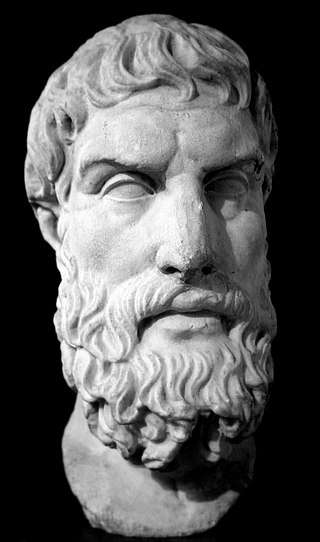
Epicurus ( 341–270 BC) was an ancient Greek philosopher and sage who founded Epicureanism, a highly influential school of philosophy. He was born on the Greek island of Samos to Athenian parents. Influenced by Democritus, Aristippus, Pyrrho, and possibly the Cynics, he turned against the Platonism of his day and established his own school, known as “the Garden”, in Athens. Epicurus and his followers were known for eating simple meals and discussing a wide range of philosophical subjects. He openly allowed women to join the school as a matter of policy. Epicurus is said to have originally written over 300 works on various subjects, but the vast majority of these writings have been lost. Only three letters written by him—the letters to Menoeceus, Pythocles, and Herodotus—and two collections of quotes—the Principal Doctrines and the Vatican Sayings—have survived intact, along with a few fragments of his other writings. Most knowledge of his teachings comes from later authors, particularly the biographer Diogenes Laërtius, the Epicurean Roman poet Lucretius and the Epicurean philosopher Philodemus, and with hostile but largely accurate accounts by the Pyrrhonist philosopher Sextus Empiricus, and the Academic Skeptic and statesman Cicero.
Read More About Epicurus / Source
Heraclitus
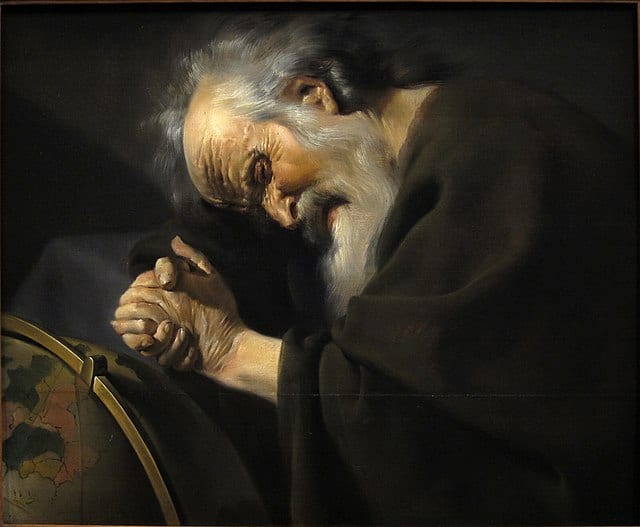
Heraclitus of Ephesus (c. 535 – c. 475 BC, fl. 500 BC) was an Ancient Greek, pre-Socratic, Ionian philosopher and a native of the city of Ephesus, which was then part of the Persian Empire.
His appreciation for wordplay and oracular expressions, as well as paradoxical elements in his philosophy, earned him the epithet “The Obscure” from antiquity. He wrote a single work, On Nature, only fragments of which have survived, increasing the obscurity associated with his life and philosophy. Heraclitus’s cryptic utterances have been the subject of numerous interpretations. He has been seen as a “material monist or a process philosopher; a scientific cosmologist, a metaphysician and a religious thinker; an empiricist, a rationalist, a mystic; a conventional thinker and a revolutionary; a developer of logic—one who denied the law of non-contradiction; the first genuine philosopher and an anti-intellectual obscurantist.Heraclitus was of distinguished parentage but he eschewed his privileged life for a lonely one as a philosopher. Little else is known about his early life and education; he regarded himself as self-taught and a pioneer of wisdom. He was considered a misanthrope who was subject to depression and became known as “the weeping philosopher” in contrast to Democritus, who was known as “the laughing philosopher”.
Read More About Heraclitus / Source
Omar Khayyam
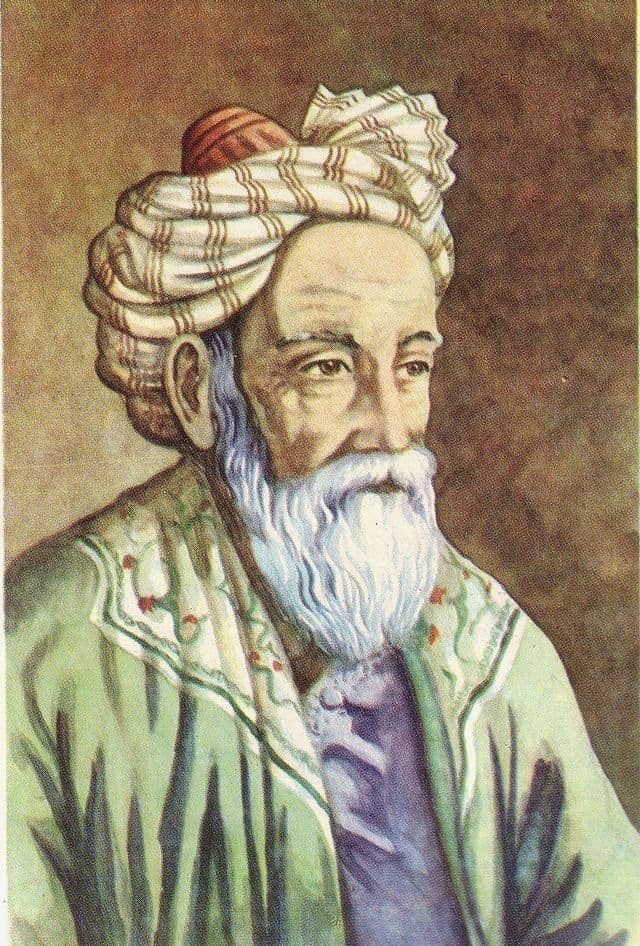
Omar Khayyam ( 18 May 1048 – 4 December 1131) was a Persian mathematician, astronomer, philosopher, and poet. He was born in Nishabur, in northeastern Iran, and spent most of his life near the court of the Karakhanid and Seljuq rulers in the period which witnessed the First Crusade.
As a mathematician, he is most notable for his work on the classification and solution of cubic equations, where he provided geometric solutions by the intersection of conics. Khayyam also contributed to the understanding of the parallel axiom. As an astronomer, he designed the Jalali calendar, a solar calendar with a very precise 33-year intercalation cycle.There is a tradition of attributing poetry to Omar Khayyam, written in the form of quatrains (rubāʿiyāt رباعیات). This poetry became widely known to the English-reading world in a translation by Edward FitzGerald (Rubaiyat of Omar Khayyam, 1859), which enjoyed great success in the Orientalism of the fin de siècle.
Read More About Omar Khayyam / Source
Martin Heidegger
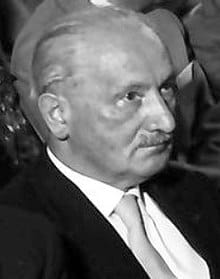
Martin Heidegger ( 26 September 1889 – 26 May 1976) was a German philosopher, and a seminal thinker in the Continental tradition of philosophy. He is best known for contributions to phenomenology, hermeneutics, and existentialism.
In Being and Time (1927), Heidegger addresses the meaning of “being” by considering the question, “what is common to all entities that makes them entities?” Heidegger approaches this question through an analysis of Dasein, his term for the specific type of being that humans possess, and which he associates closely with his concept of “being-in-the-world” (In-der-Welt-sein). This conception of the human is in contrast with that of Rationalist thinkers like René Descartes, who had understood human existence most basically as thinking, as in Cogito ergo sum (“I think therefore I am”).
Heidegger’s later work includes criticism of the view, common in the Western tradition, that all of nature is a “standing reserve” on call, as if it were a part of industrial inventory.
Read More About Martin Heidegger / Source
Plotinus
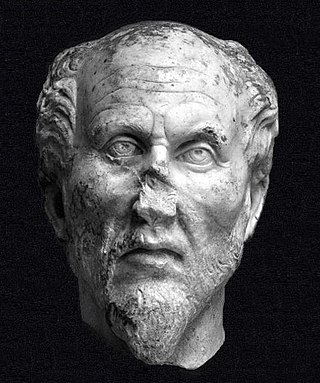
Plotinus ( c. 204/5 – 270) was a major Hellenistic philosopher who lived in Roman Egypt. In his philosophy, described in the Enneads, there are three principles: the One, the Intellect, and the Soul. His teacher was Ammonius Saccas, who was of the Platonic tradition. Historians of the 19th century invented the term Neoplatonism and applied it to Plotinus and his philosophy, which was influential during Late Antiquity and the Middle Ages. Much of the biographical information about Plotinus comes from Porphyry’s preface to his edition of Plotinus’ Enneads. His metaphysical writings have inspired centuries of Pagan, Jewish, Christian, Gnostic, and Islamic metaphysicians and mystics, including developing precepts that influence mainstream theological concepts within religions, such as his work on duality of the One in two metaphysical states.
Read More About Plotinus / Source
Jenny Y. Yang

Jenny Yue-fon Yang is an American chemist. She is an associate professor of chemistry at the University of California, Irvine where she leads a research group focused on inorganic chemistry, catalysis, and solar fuels. Yang is a recipient of several awards.
Read More About Jenny Y. Yang / Source
Shah Nimatullah Wali
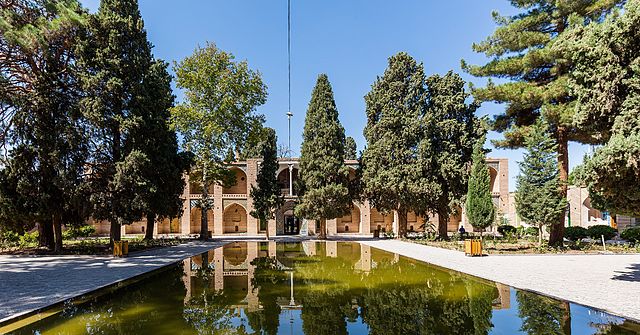
Shāh Nimatullāh or Shāh Ni’matullāh Wali, also spelled as Ne’matollah and Ni’matallah was a Persian Sufi Master and poet from the 14th and 15th centuries. He is revered by Sunni Islam as a saint and by the Ni’matullāhī tariqa, who consider him their founder.
Read More About Shah Nimatullah Wali / Source
Arthur Schopenhauer
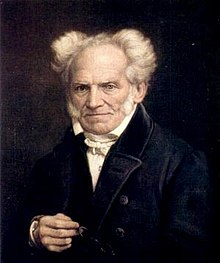
Arthur Schopenhauer ( 22 February 1788 – 21 September 1860) was a German philosopher. He is best known for his 1818 work The World as Will and Representation (expanded in 1844), which characterizes the phenomenal world as the product of a blind and insatiable metaphysical will. Building on the transcendental idealism of Immanuel Kant, Schopenhauer developed an atheistic metaphysical and ethical system that rejected the contemporaneous ideas of German idealism. He was among the first thinkers in Western philosophy to share and affirm significant tenets of Indian philosophy, such as asceticism, denial of the self, and the notion of the world-as-appearance. His work has been described as an exemplary manifestation of philosophical pessimism.Though his work failed to garner substantial attention during his lifetime, Schopenhauer had a posthumous impact across various disciplines, including philosophy, literature, and science. His writing on aesthetics, morality, and psychology have influenced many thinkers and artists. Those who have cited his influence include philosophers such as Friedrich Nietzsche, Ludwig Wittgenstein, and Anthony Ludovici, scientists such as Erwin Schrödinger and Albert Einstein, psychoanalysts such as Sigmund Freud and Carl Jung, writers such as Leo Tolstoy, Herman Melville, Thomas Mann, George Bernard Shaw, Machado de Assis, Jorge Luis Borges, and Samuel Beckett, and, notably, the composer Richard Wagner.
Read More About Arthur Schopenhauer / Source
Boethius
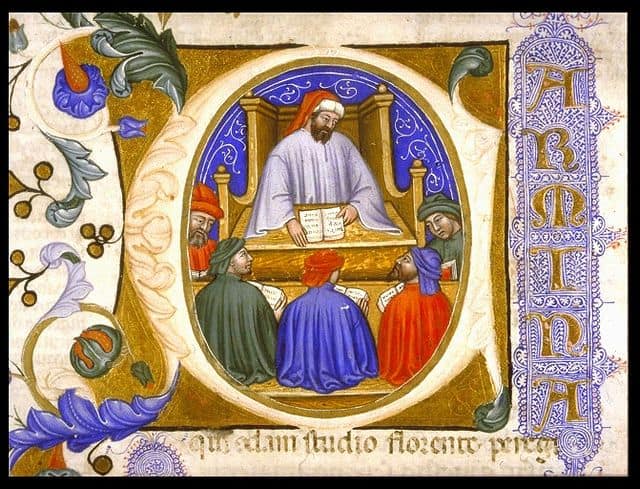
Anicius Manlius Severinus Boëthius, commonly called Boethius ( c. 477 – 524 AD), was a Roman senator, consul, magister officiorum, and philosopher of the early 6th century. He was born about a year after Odoacer deposed the last Western Roman Emperor and declared himself King of Italy.
Boethius entered public service under Ostrogothic King Theodoric the Great, who later imprisoned and executed him in 524 on charges of conspiracy to overthrow him.
While jailed, Boethius composed his Consolation of Philosophy, a philosophical treatise on fortune, death, and other issues, which became one of the most popular and influential works of the Middle Ages. As the author of numerous handbooks and translator of Plato and Aristotle, he became the main intermediary between Classical antiquity and following centuries.
Read More About Boethius / Source
Maimonides
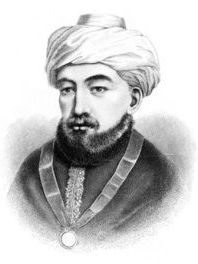
Moses ben Maimon, (1138–1204), commonly known as Maimonides ( my-MON-i-deez) and also referred to by the acronym Rambam (Hebrew: רמב״ם), was a medieval Sephardic Jewish philosopher who became one of the most prolific and influential Torah scholars of the Middle Ages. In his time, he was also a preeminent astronomer and physician, serving as the personal physician of Saladin. Born in Córdoba, Almoravid Empire (present-day Spain) on Passover eve, 1138 (or 1135), he worked as a rabbi, physician and philosopher in Morocco and Egypt. He died in Egypt on 12 December 1204, whence his body was taken to the lower Galilee and buried in Tiberias.During his lifetime, most Jews greeted Maimonides’ writings on Jewish law and ethics with acclaim and gratitude, even as far away as Iraq and Yemen. Yet, while Maimonides rose to become the revered head of the Jewish community in Egypt, his writings also had vociferous critics, particularly in Spain. Nonetheless, he was posthumously acknowledged as among the foremost rabbinical decisors and philosophers in Jewish history, and his copious work comprises a cornerstone of Jewish scholarship. His fourteen-volume Mishneh Torah still carries significant canonical authority as a codification of Talmudic law. He is sometimes known as “ha’Nesher ha’Gadol” (the great eagle) in recognition of his outstanding status as a bona fide exponent of the Oral Torah.
Read More About Maimonides / Source
Jacques Lacan
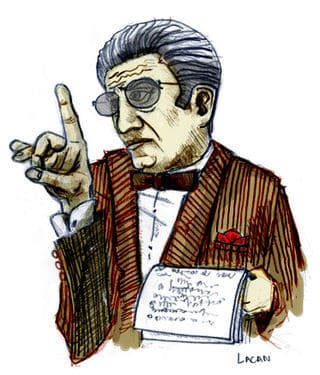
Jacques Marie Émile Lacan ( 13 April 1901 – 9 September 1981) was a French psychoanalyst and psychiatrist who has been called “the most controversial psycho-analyst since Freud”. Giving yearly seminars in Paris from 1953 to 1981, Lacan’s work has marked the French and international intellectual landscape, having made a significant impact on continental philosophy and cultural theory in areas such as post-structuralism, critical theory, feminist theory and film theory as well as on psychoanalysis itself.
Lacan took up and discussed the whole range of Freudian concepts emphasising the philosophical dimension of Freud’s thought and applying concepts derived from structuralism in linguistics and anthropology to its development in his own work which he would further augment by employing formulae from mathematical logic and topology. Taking this new direction, and introducing controversial innovations in clinical practice, led to expulsion for Lacan and his followers from the International Psychoanalytic Association. In consequence Lacan went on to establish new psychoanalytic institutions to promote and develop his work which he declared to be a “return to Freud” in opposition to prevalent trends in psychoanalysis collusive of adaptation to social norms.
Read More About Jacques Lacan / Source
Parmenides
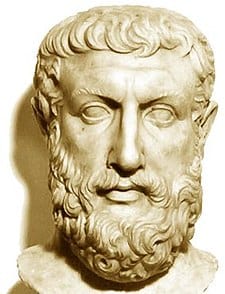
Parmenides of Elea ( fl. late sixth or early fifth century BC) was a pre-Socratic Greek philosopher from Elea in Magna Graecia (meaning “Great Greece,” the term which Romans gave to Greek-populated coastal areas in Southern Italy). He is thought to have been in his prime (or “floruit”) around 475 BC.Parmenides has been considered the founder of metaphysics or ontology and has influenced the whole history of Western philosophy. He was the founder of the Eleatic school of philosophy, which also included Zeno of Elea and Melissus of Samos. Zeno’s paradoxes of motion were to defend Parmenides’ view.
The single known work by Parmenides is a poem whose original title is unknown but which is often referred to as On Nature. Only fragments of it survive, but its importance lies in the fact that it contains the first sustained argument in the history of Western philosophy. In his poem, Parmenides prescribes two views of reality. In “the way of truth” (a part of the poem), he explains how all reality is one, change is impossible, and existence is timeless, uniform, and necessary. In “the way of opinion”, Parmenides explains the world of appearances, in which one’s sensory faculties lead to conceptions which are false and deceitful, yet he does offer a cosmology.
Read More About Parmenides / Source
Jacques Derrida
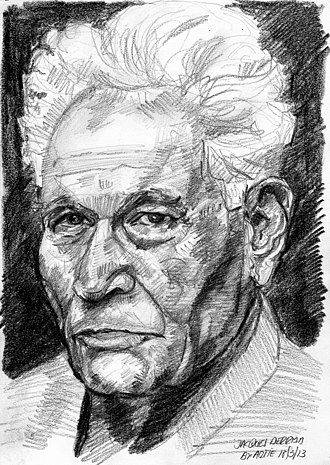
Jacques Derrida ( July 15, 1930 – October 9, 2004) was an Algerian-born French philosopher best known for developing a form of semiotic analysis known as deconstruction, which he discussed in numerous texts, and developed in the context of phenomenology. He is one of the major figures associated with post-structuralism and postmodern philosophy.During his career Derrida published more than 40 books, together with hundreds of essays and public presentations. He had a significant influence on the humanities and social sciences, including philosophy, literature, law, anthropology, historiography, applied linguistics, sociolinguistics, psychoanalysis and political theory.
His work retains major academic influence throughout the US continental Europe, South America and all other countries where continental philosophy has been predominant, particularly in debates around ontology, epistemology (especially concerning social sciences), ethics, aesthetics, hermeneutics, and the philosophy of language. In most of the Anglosphere, where analytic philosophy is dominant, Derrida’s influence is most presently felt in literary studies due to his longstanding interest in language and his association with prominent literary critics from his time at Yale.
Read More About Jacques Derrida / Source
David Hume
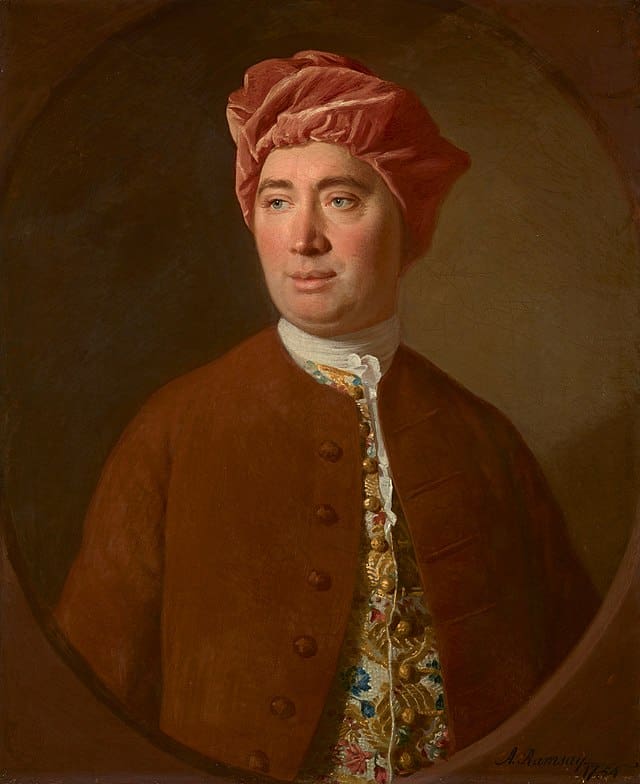
David Hume ( 7 May 1711 NS (26 April 1711 OS) – 25 August 1776) was a Scottish Enlightenment philosopher, historian, economist, librarian and essayist, who is best known today for his highly influential system of philosophical empiricism, skepticism, and naturalism. Beginning with A Treatise of Human Nature (1739–40), Hume strove to create a naturalistic science of man that examined the psychological basis of human nature. Hume argued against the existence of innate ideas, positing that all human knowledge derives solely from experience. This places him with Francis Bacon, Thomas Hobbes, John Locke, and George Berkeley, as a British Empiricist.Hume argued that inductive reasoning and belief in causality cannot be justified rationally; instead, they result from custom and mental habit. We never actually perceive that one event causes another but only experience the “constant conjunction” of events. This problem of induction means that to draw any causal inferences from past experience, it is necessary to presuppose that the future will resemble the past, a presupposition which cannot itself be grounded in prior experience.
Read More About David Hume / Source
Edmund Husserl
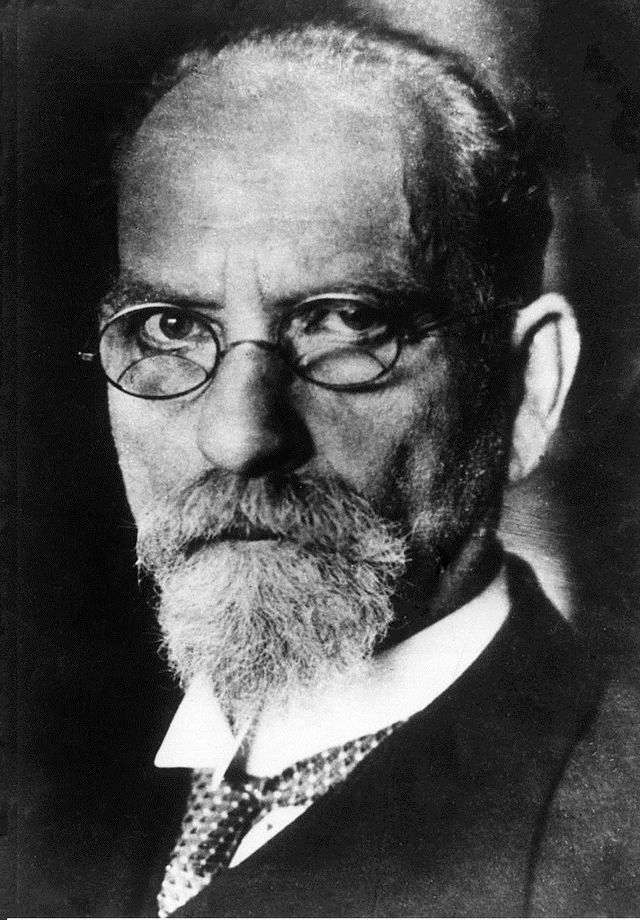
Edmund Gustav Albrecht Husserl ( 8 April 1859 – 27 April 1938) was a German philosopher who established the school of phenomenology. In his early work, he elaborated critiques of historicism and of psychologism in logic based on analyses of intentionality. In his mature work, he sought to develop a systematic foundational science based on the so-called phenomenological reduction. Arguing that transcendental consciousness sets the limits of all possible knowledge, Husserl redefined phenomenology as a transcendental-idealist philosophy. Husserl’s thought profoundly influenced 20th-century philosophy, and he remains a notable figure in contemporary philosophy and beyond.
Husserl studied mathematics, taught by Karl Weierstrass and Leo Königsberger, and philosophy taught by Franz Brentano and Carl Stumpf. He taught philosophy as a Privatdozent at Halle from 1887, then as professor, first at Göttingen from 1901, then at Freiburg from 1916 until he retired in 1928, after which he remained highly productive. In 1933, due to racial laws, having been born to a Jewish family, he was expelled from the library of the University of Freiburg, and months later resigned from the Deutsche Akademie. Following an illness, he died in Freiburg in 1938.
Read More About Edmund Husserl / Source
Kahlil Gibran
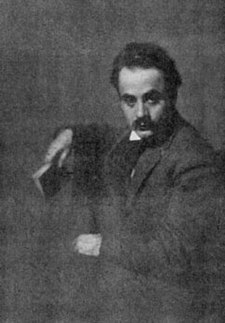
Gibran Khalil Gibran ( January 6, 1883 – April 10, 1931), usually referred to in English as Kahlil Gibran (pronounced kah-LEEL ji-BRAHN), was a Lebanese-American writer, poet and visual artist, also considered a philosopher although he himself rejected the title. He is best known as the author of The Prophet, which was first published in the United States in 1923 and has since become one of the best-selling books of all time, having been translated into more than 100 languages. Born in a village of the Ottoman-ruled Mount Lebanon Mutasarrifate to a Maronite family, the young Gibran immigrated with his mother and siblings to the United States in 1895. As his mother worked as a seamstress, he was enrolled at a school in Boston, where his creative abilities were quickly noticed by a teacher who presented him to photographer and publisher F. Holland Day. Gibran was sent back to his native land by his family at the age of fifteen to enroll at the Collège de la Sagesse in Beirut. Returning to Boston upon his youngest sister’s death in 1902, he lost his older half-brother and his mother the following year, seemingly relying afterwards on his remaining sister’s income from her work at a dressmaker’s shop for some time.
Read More About Kahlil Gibran / Source
Democritus
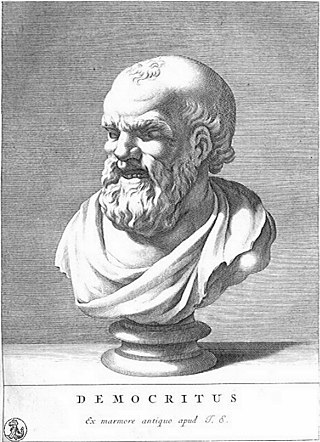
Democritus ( c. 460 – c. 370 BC) was an Ancient Greek pre-Socratic philosopher primarily remembered today for his formulation of an atomic theory of the universe.Democritus was born in Abdera, Thrace, around 460 BC, although there are disagreements about the exact year. His exact contributions are difficult to disentangle from those of his mentor Leucippus, as they are often mentioned together in texts. Their speculation on atoms, taken from Leucippus, bears a passing and partial resemblance to the 19th-century understanding of atomic structure that has led some to regard Democritus as more of a scientist than other Greek philosophers; however, their ideas rested on very different bases.
Largely ignored in ancient Athens, Democritus is said to have been disliked so much by Plato that the latter wished all of his books burned. He was nevertheless well known to his fellow northern-born philosopher Aristotle, and was the teacher of Protagoras.Many consider Democritus to be the “father of modern science”. None of his writings have survived; only fragments are known from his vast body of work.
Read More About Democritus / Source
Jeremy Bentham
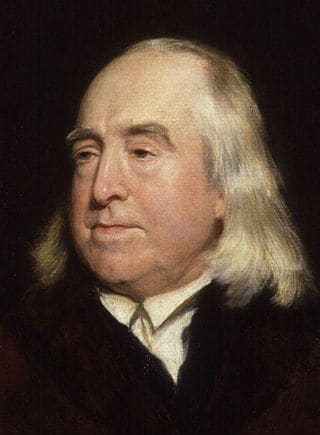
Jeremy Bentham ( 15 February 1748 [O.S. 4 February 1747] – 6 June 1832) was an English philosopher, jurist, and social reformer regarded as the founder of modern utilitarianism.Bentham defined as the “fundamental axiom” of his philosophy the principle that “it is the greatest happiness of the greatest number that is the measure of right and wrong.” He became a leading theorist in Anglo-American philosophy of law, and a political radical whose ideas influenced the development of welfarism. He advocated individual and economic freedoms, the separation of church and state, freedom of expression, equal rights for women, the right to divorce, and (in an unpublished essay) the decriminalising of homosexual acts. He called for the abolition of slavery, capital punishment and physical punishment, including that of children. He has also become known as an early advocate of animal rights. Though strongly in favour of the extension of individual legal rights, he opposed the idea of natural law and natural rights (both of which are considered “divine” or “God-given” in origin), calling them “nonsense upon stilts.” Bentham was also a sharp critic of legal fictions.
Read More About Jeremy Bentham / Source
Antonio Gramsci
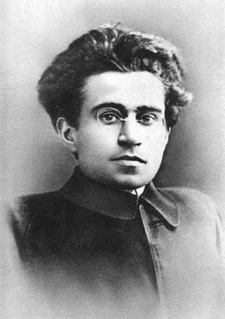
Antonio Francesco Gramsci ( 22 January 1891 – 27 April 1937) was an Italian Marxist philosopher, journalist, linguist, writer and politician. He wrote on philosophy, political theory, sociology, history and linguistics. He was a founding member and one-time leader of the Communist Party of Italy and was imprisoned by Benito Mussolini’s Fascist regime.
Gramsci wrote more than 30 notebooks and 3,000 pages of history and analysis during his imprisonment. His Prison Notebooks are considered a highly original contribution to 20th-century political theory. Gramsci drew insights from varying sources – not only other Marxists but also thinkers such as Niccolò Machiavelli, Vilfredo Pareto, Georges Sorel and Benedetto Croce. The notebooks cover a wide range of topics, including Italian history and nationalism, the French Revolution, fascism, Taylorism and Fordism, civil society, folklore, religion and high and popular culture.
Read More About Antonio Gramsci / Source
Eric Barker
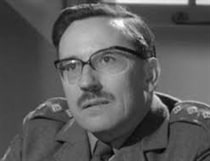
Eric Leslie Barker (12 February 1912 – 1 June 1990) was an English comedy actor. He is most remembered for his roles in the popular British Carry On films, although he only appeared in the early films in the series, apart from returning for Carry On Emmannuelle in 1978.
Read More About Eric Barker / Source








